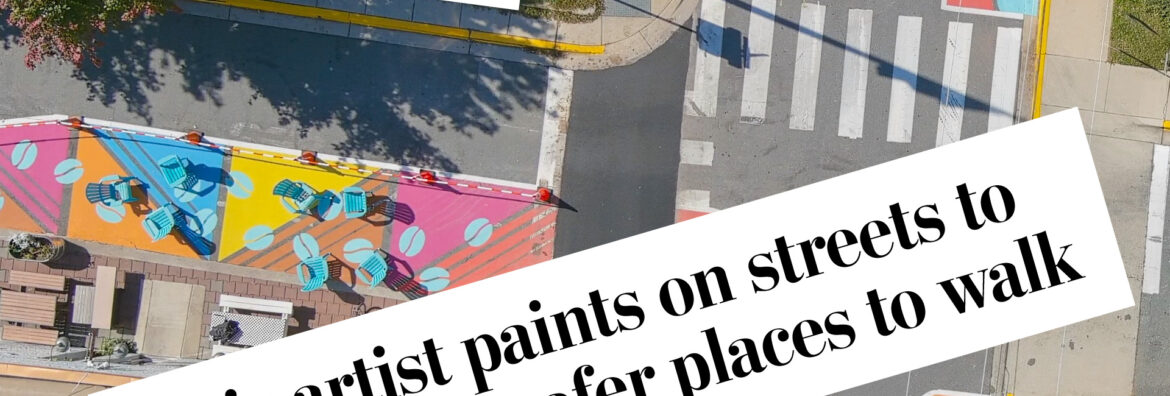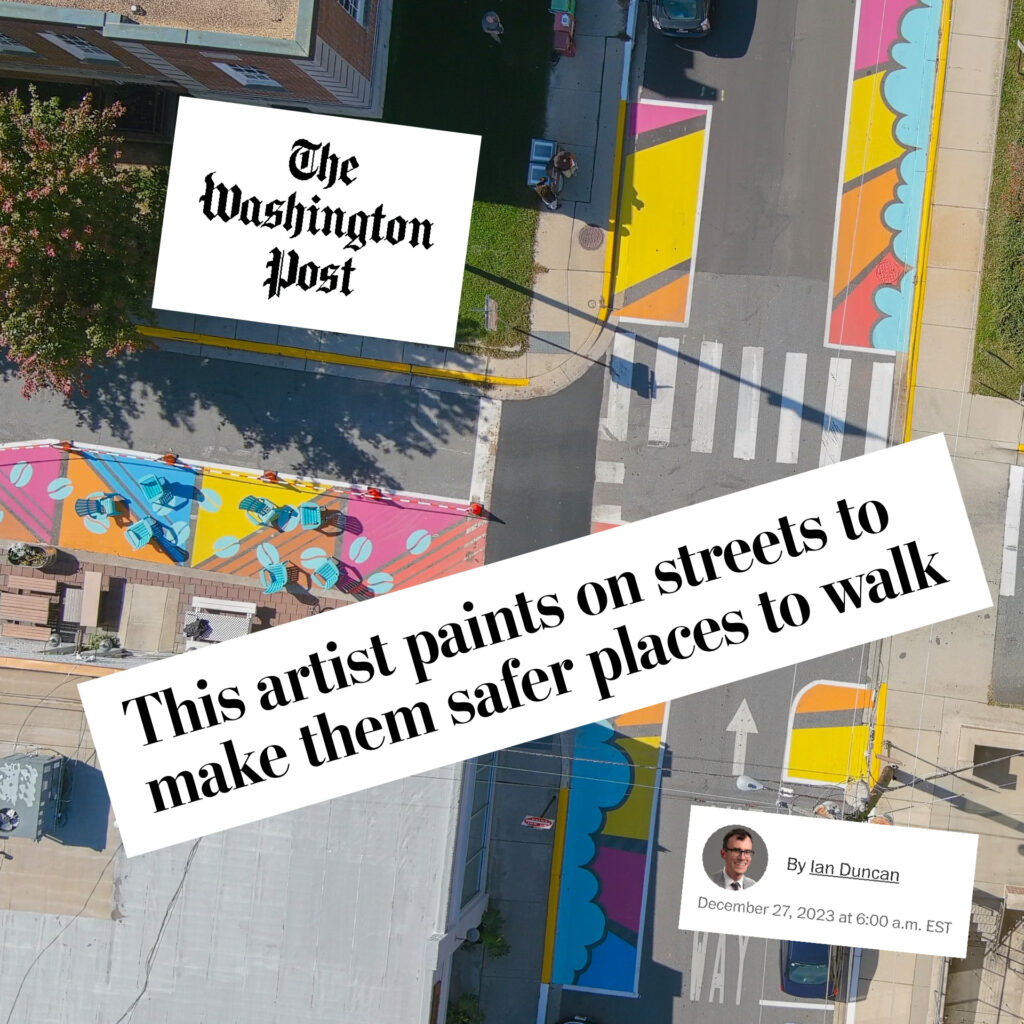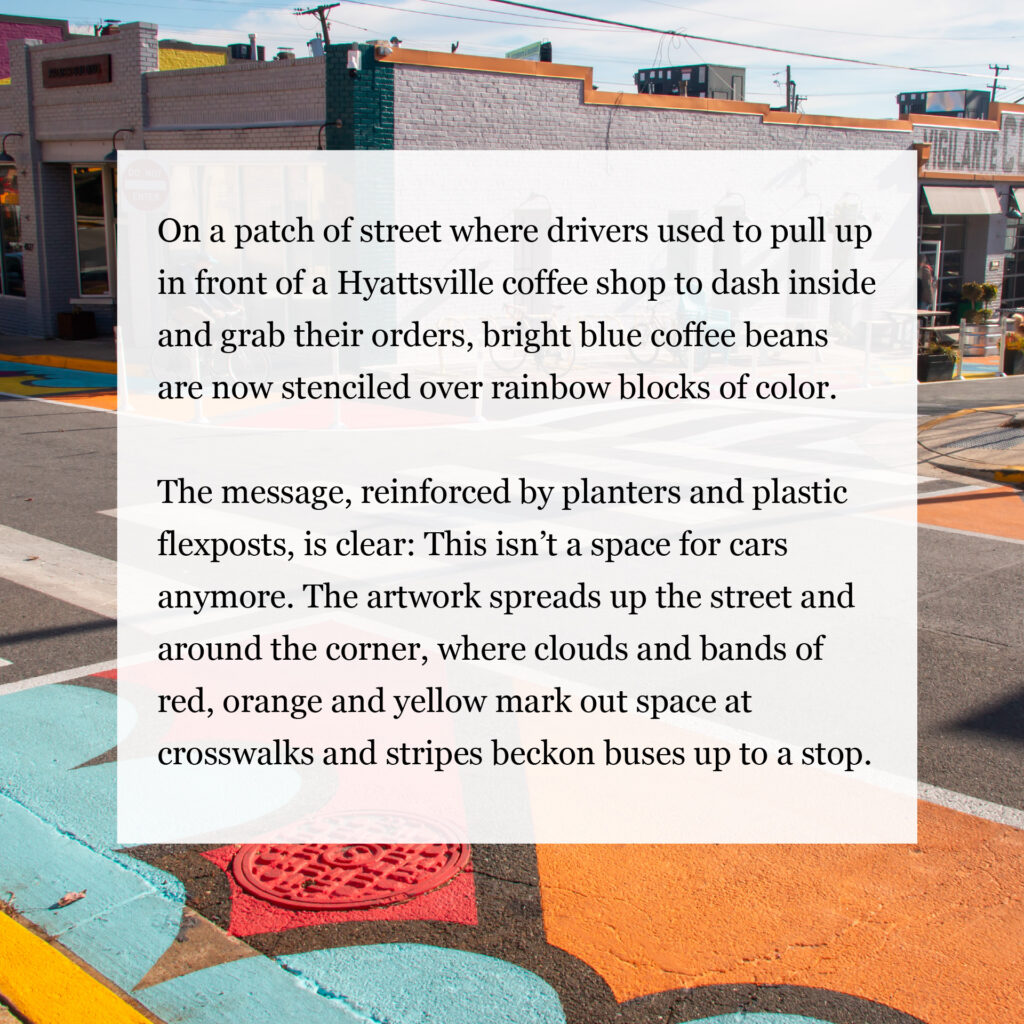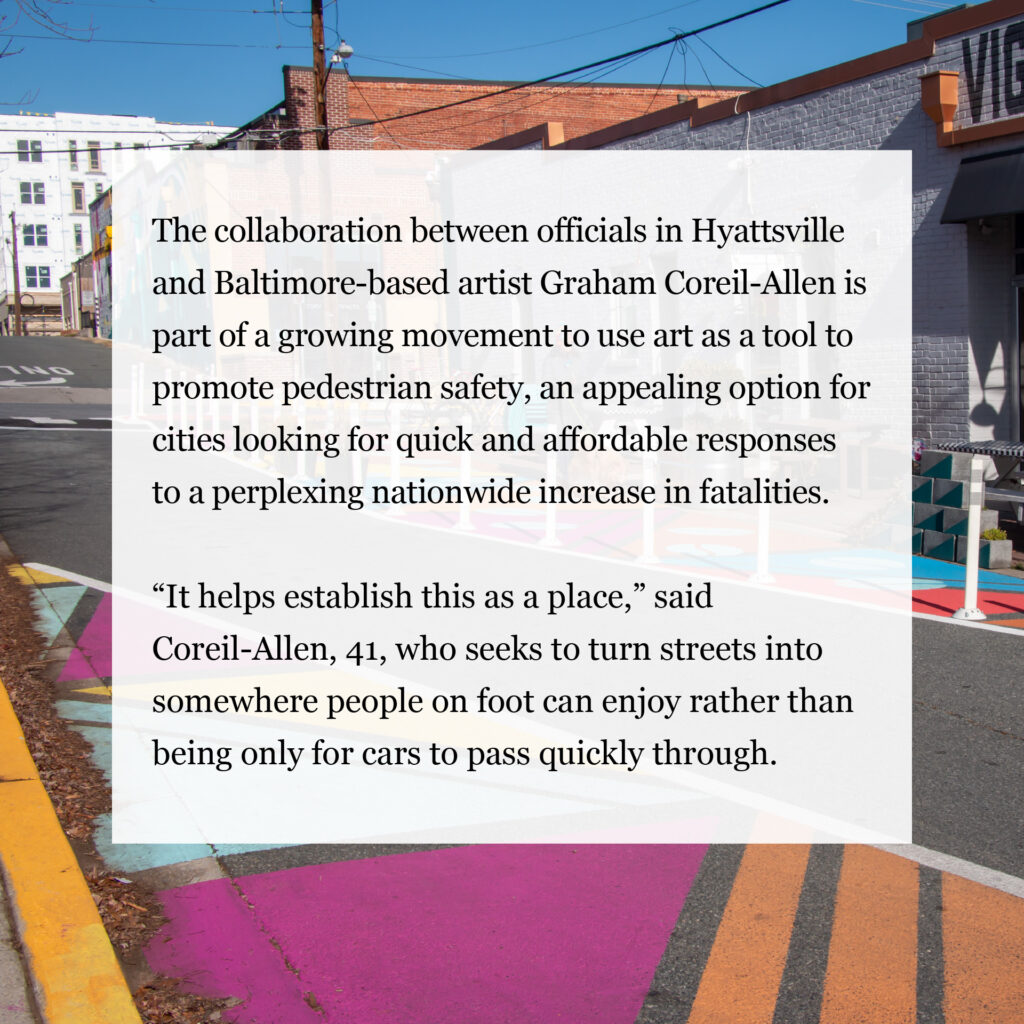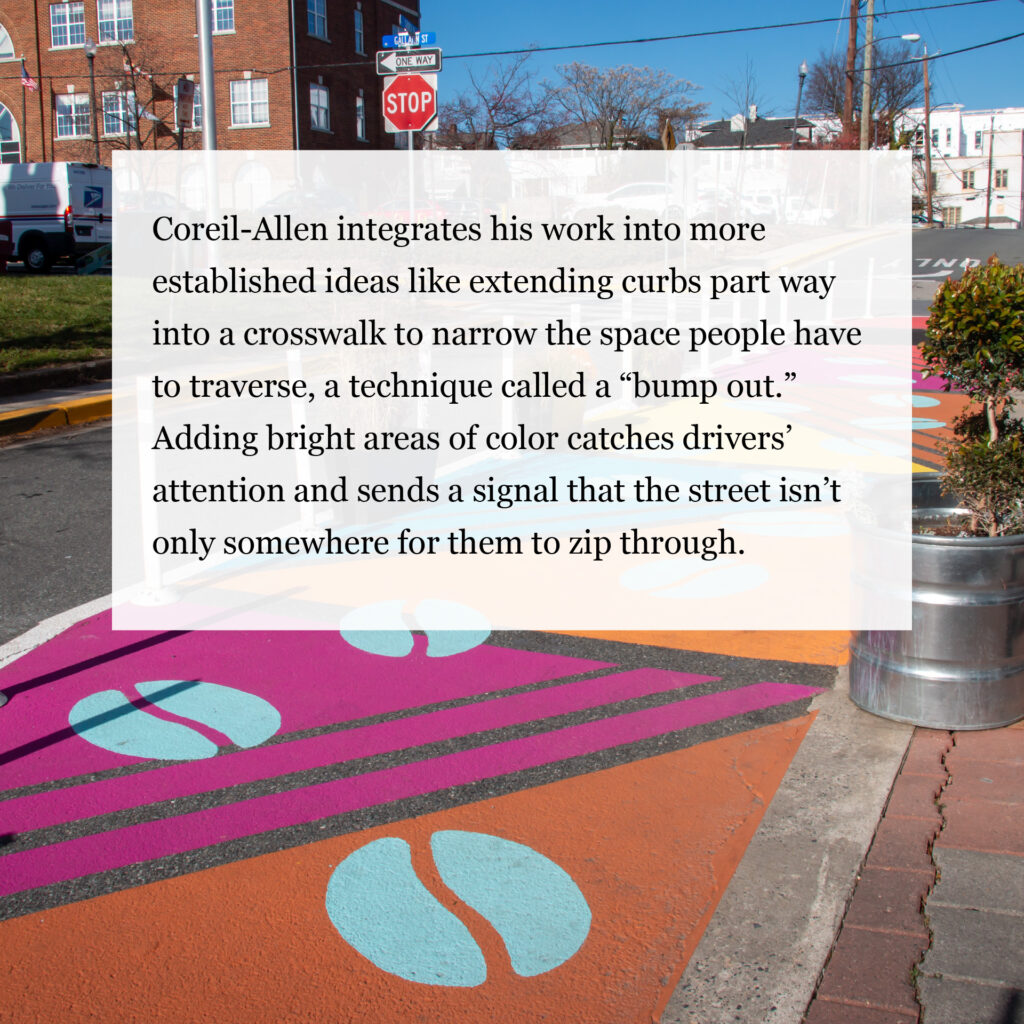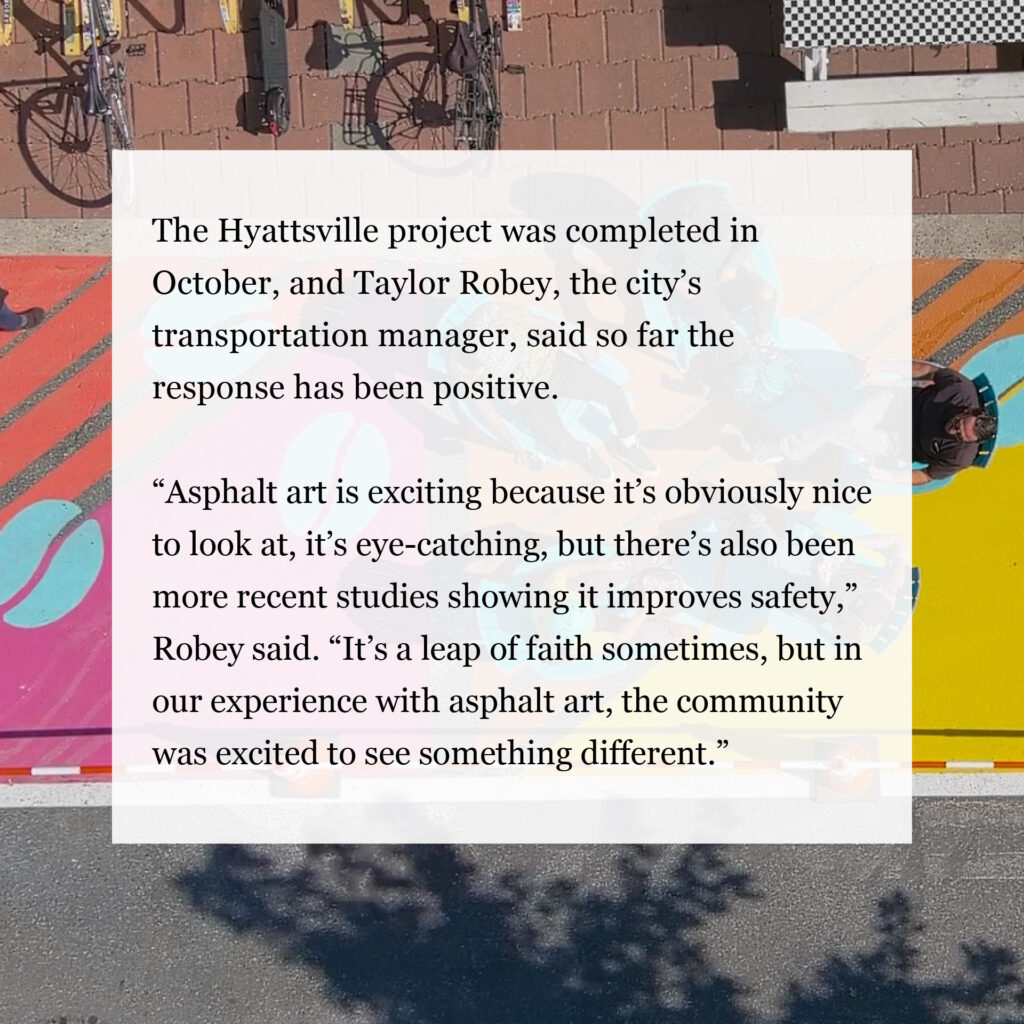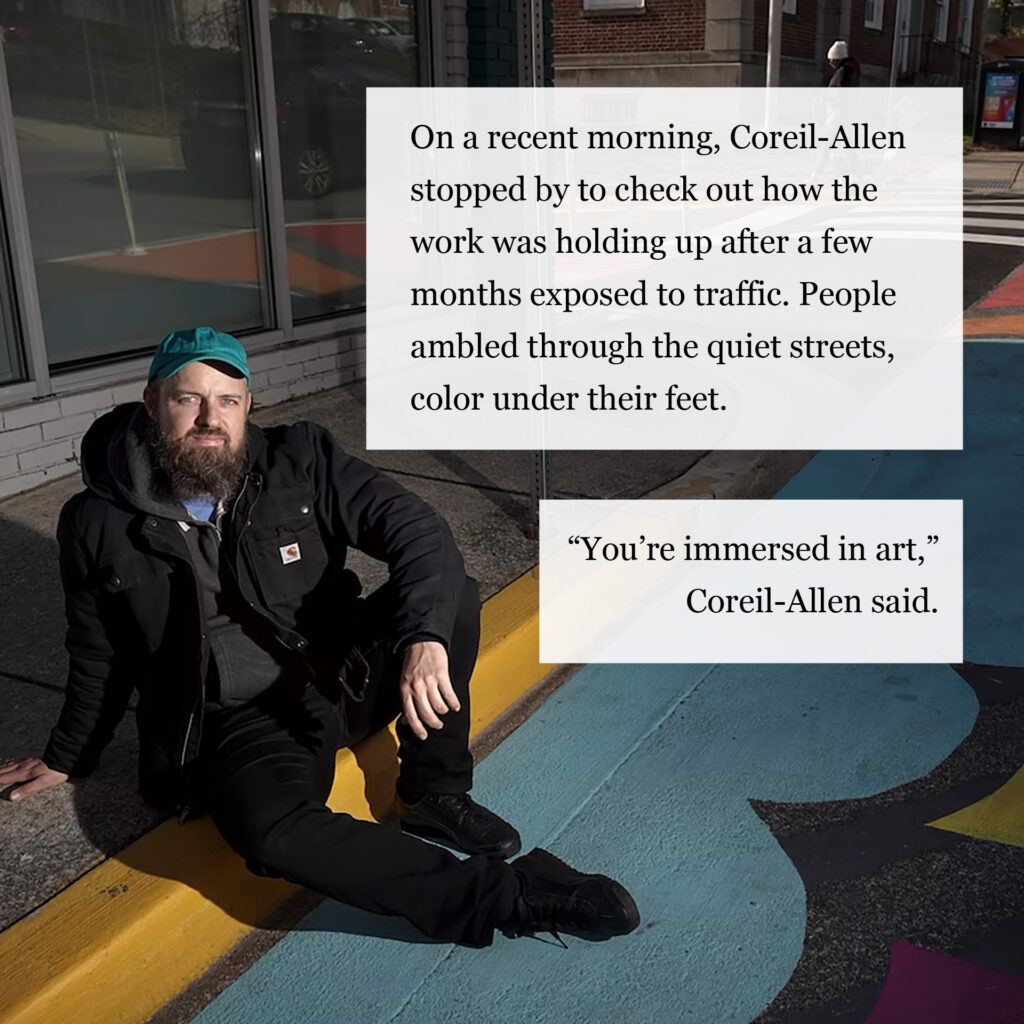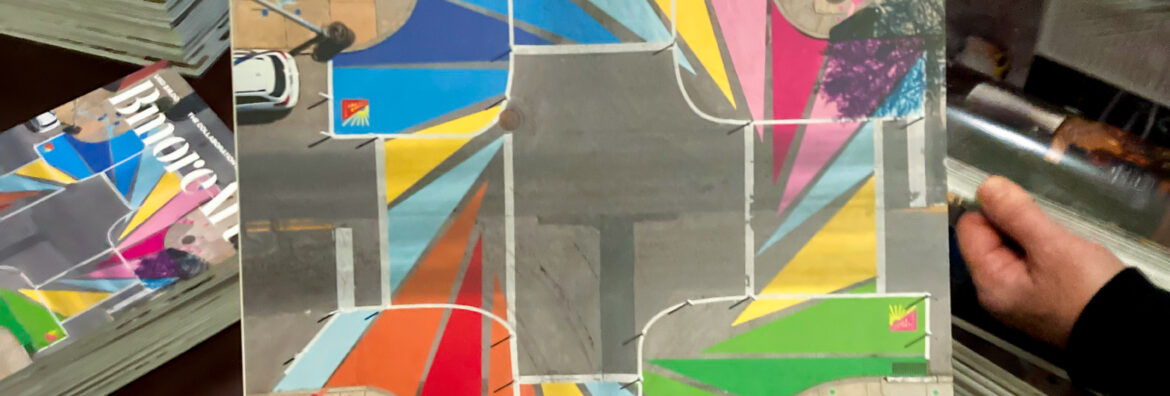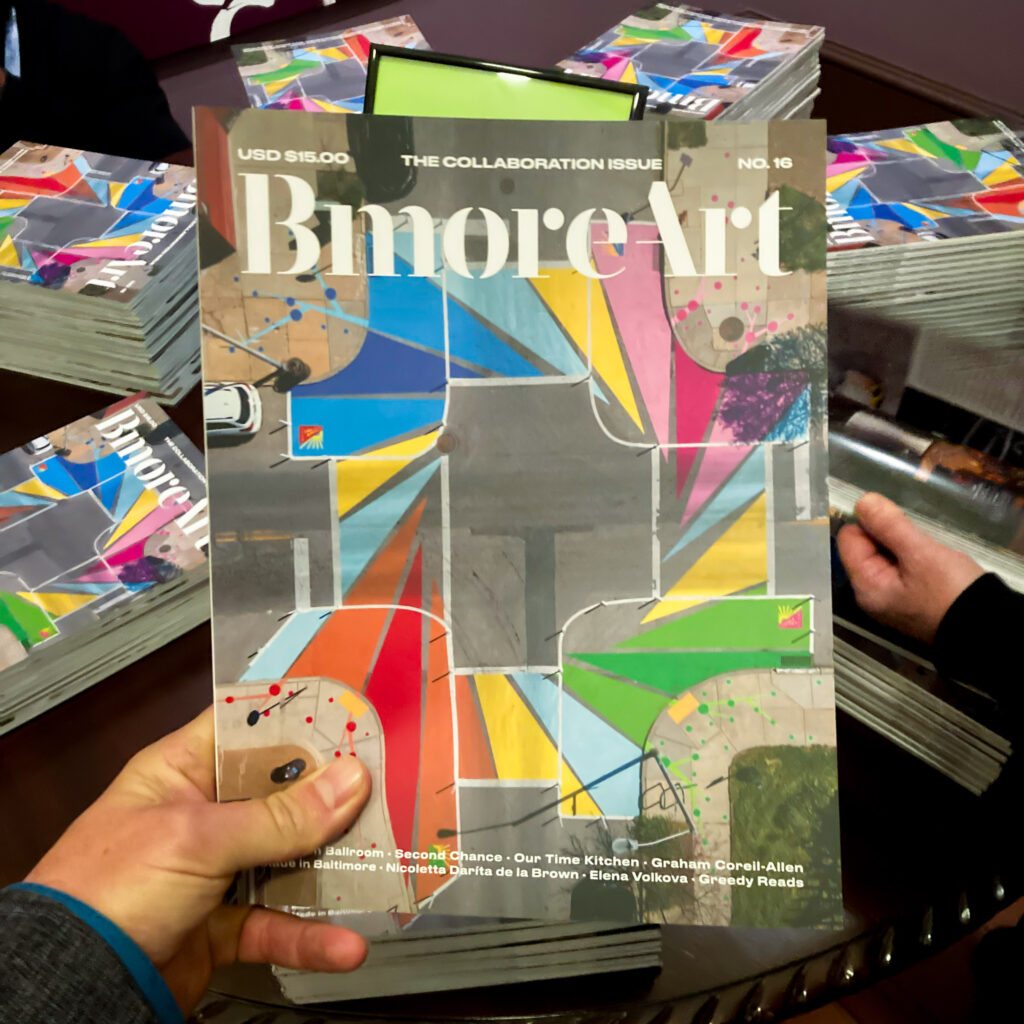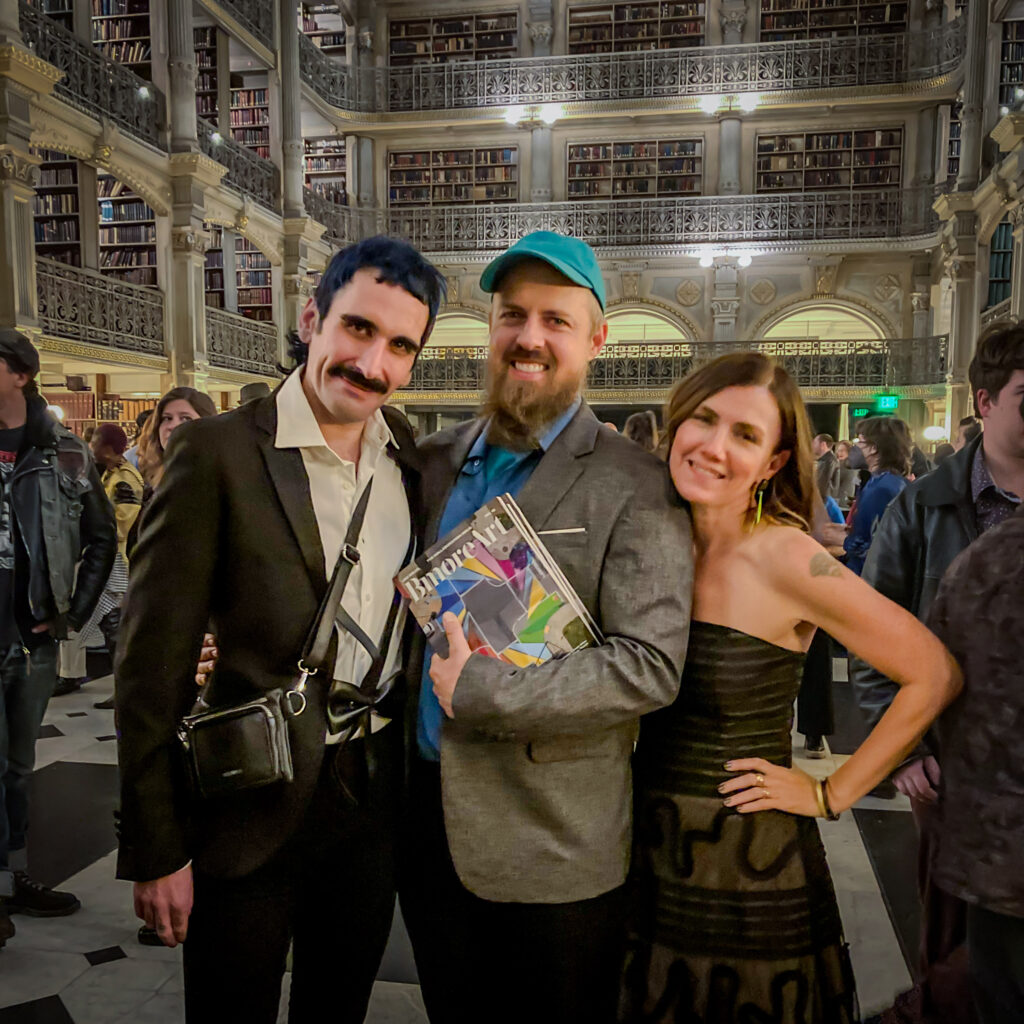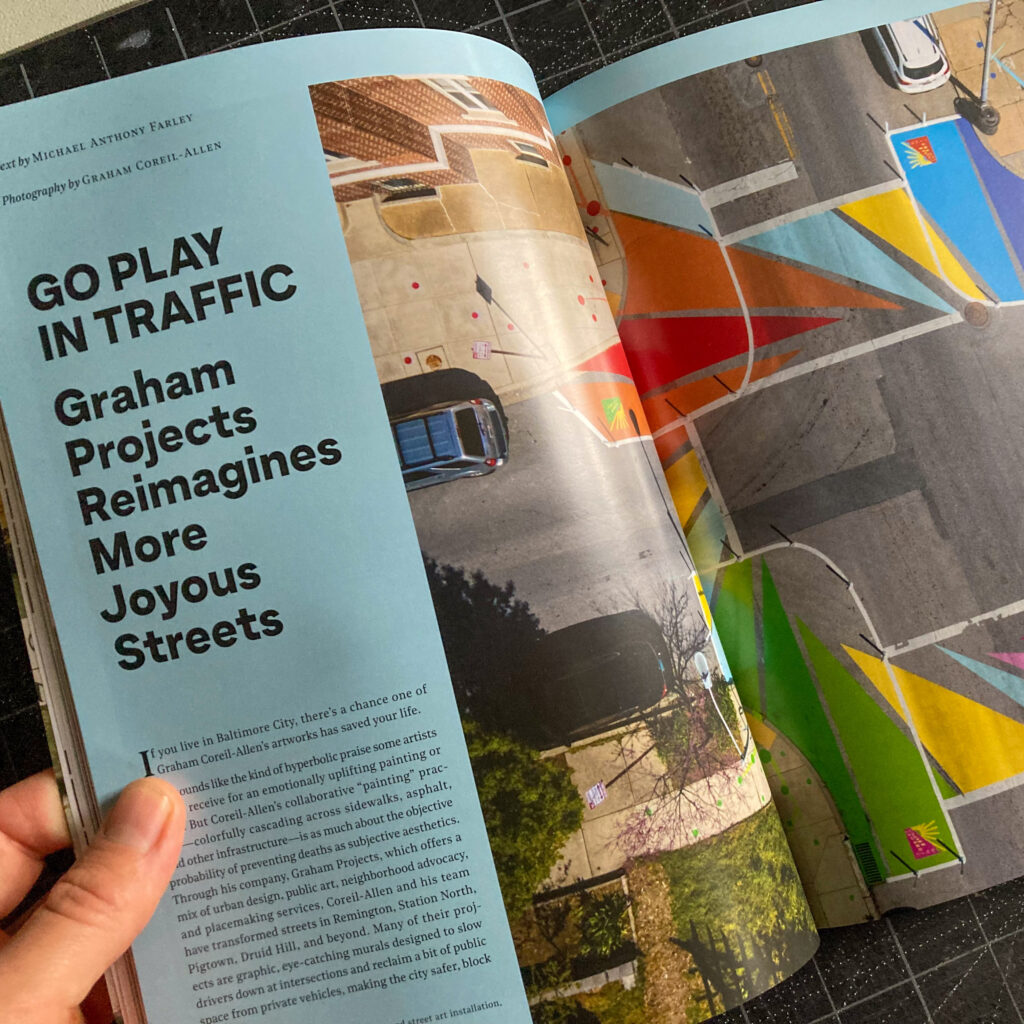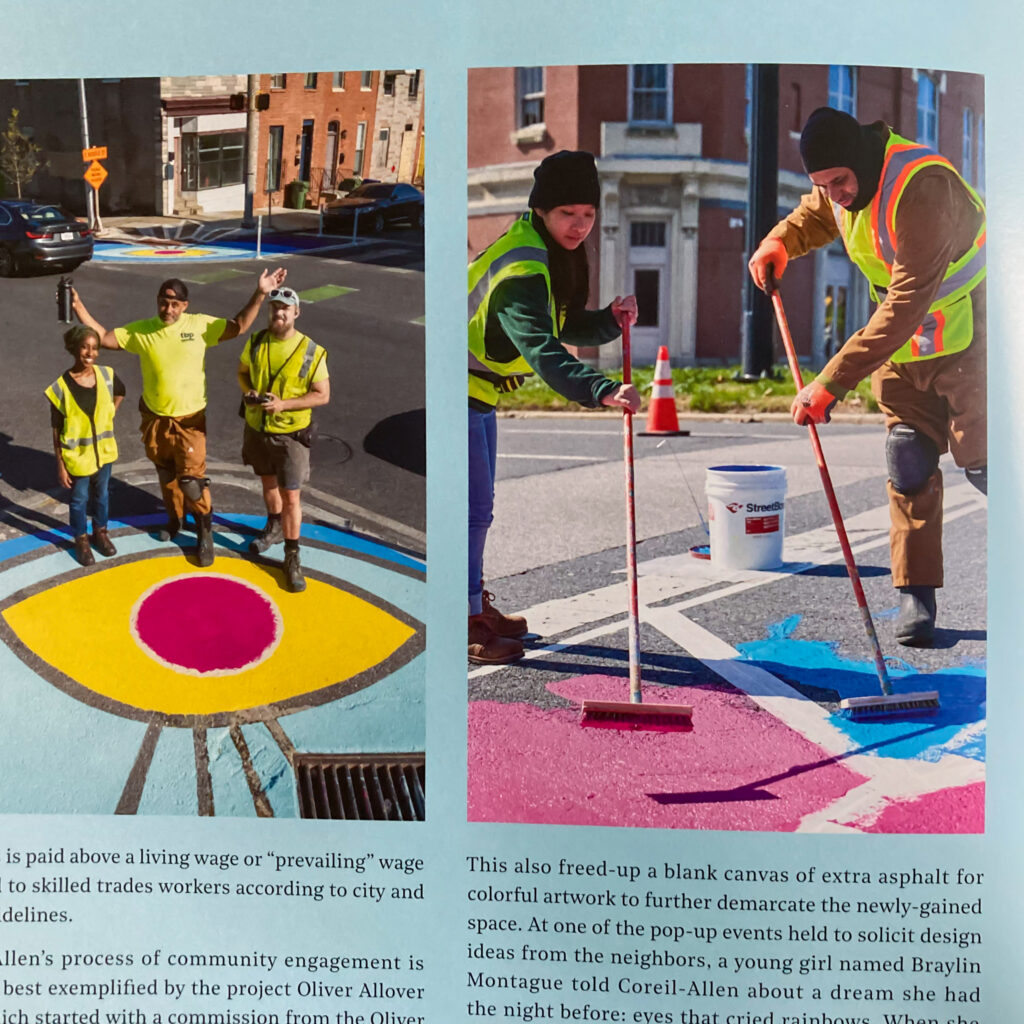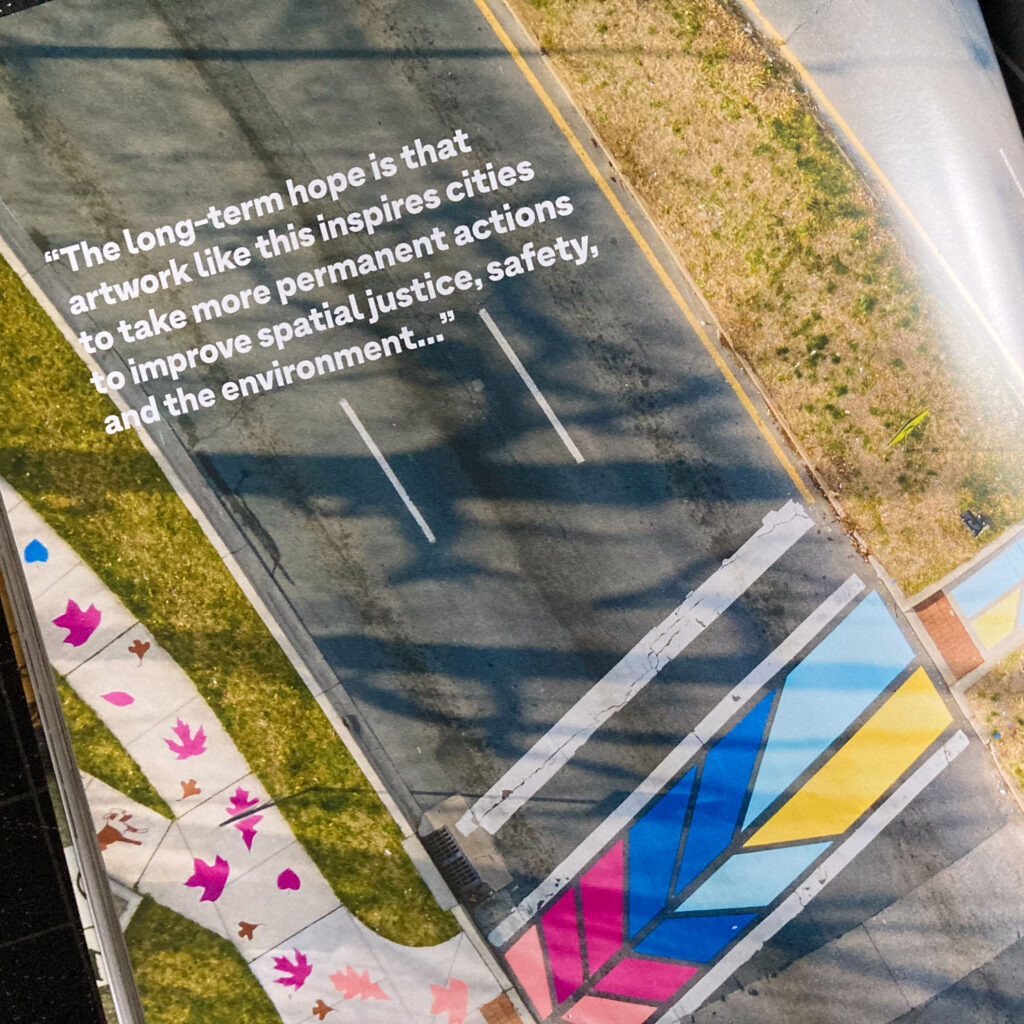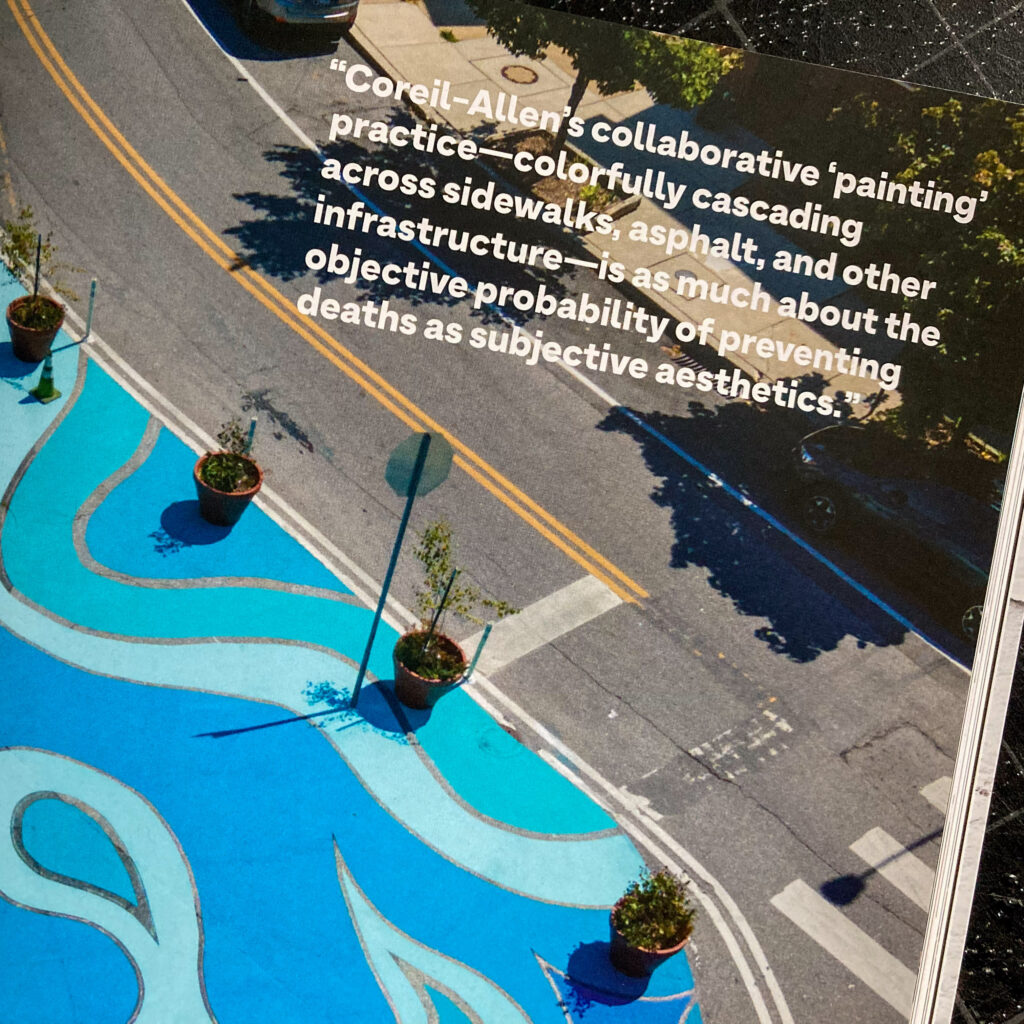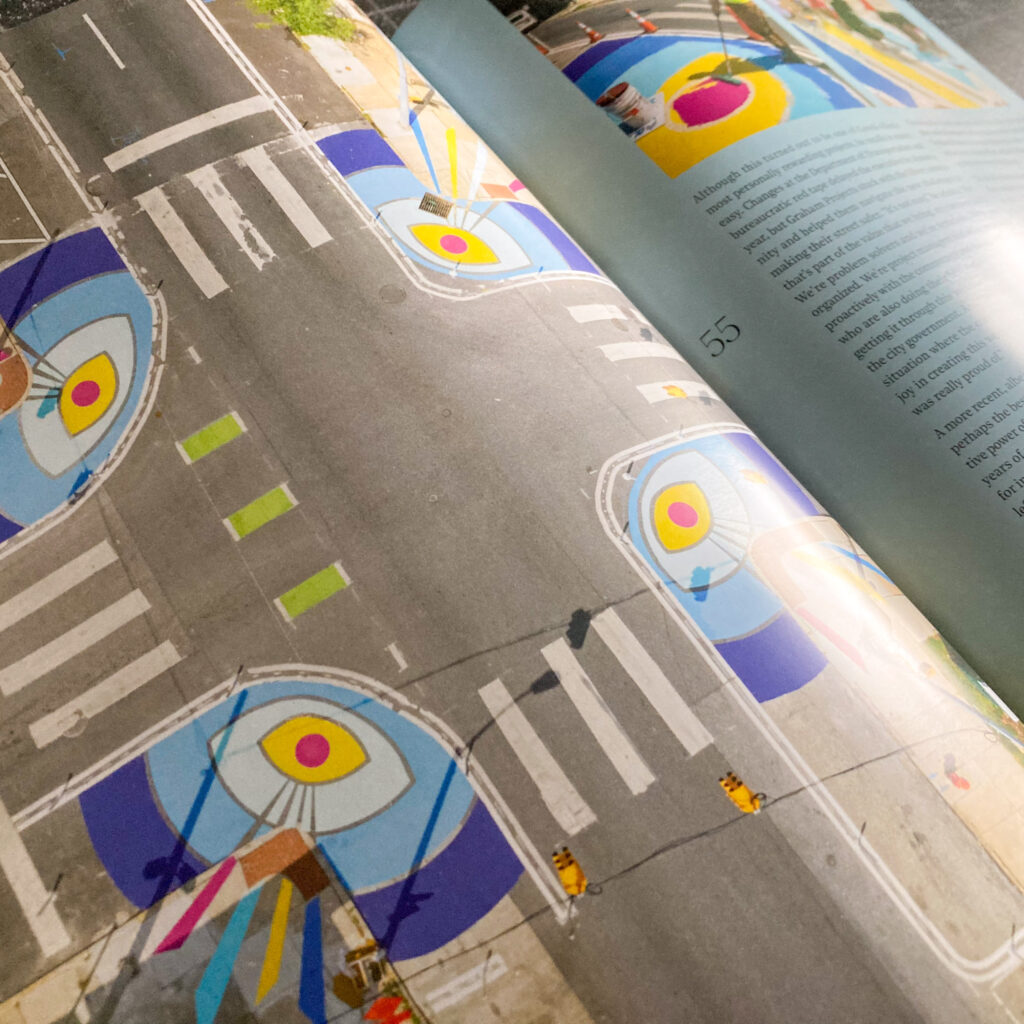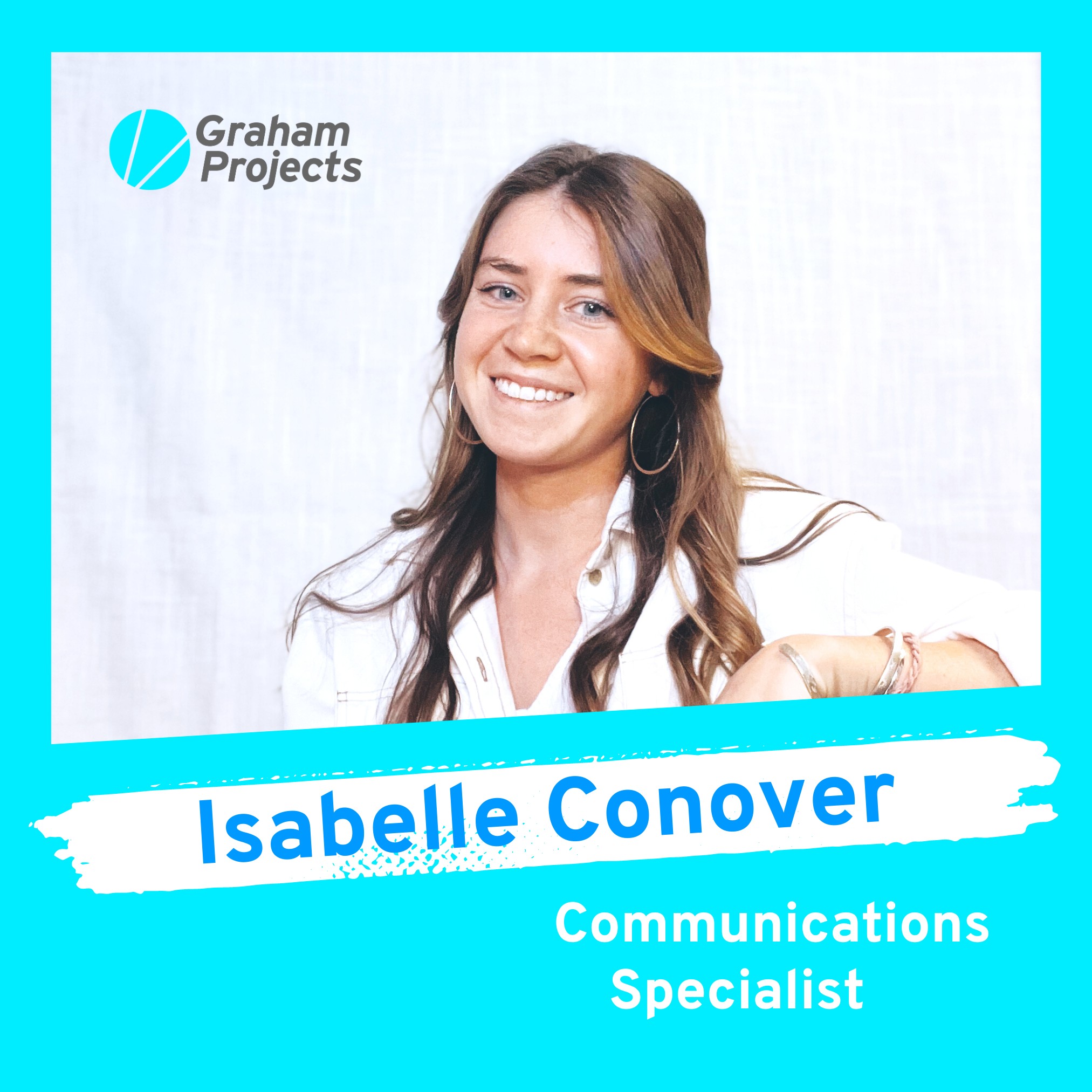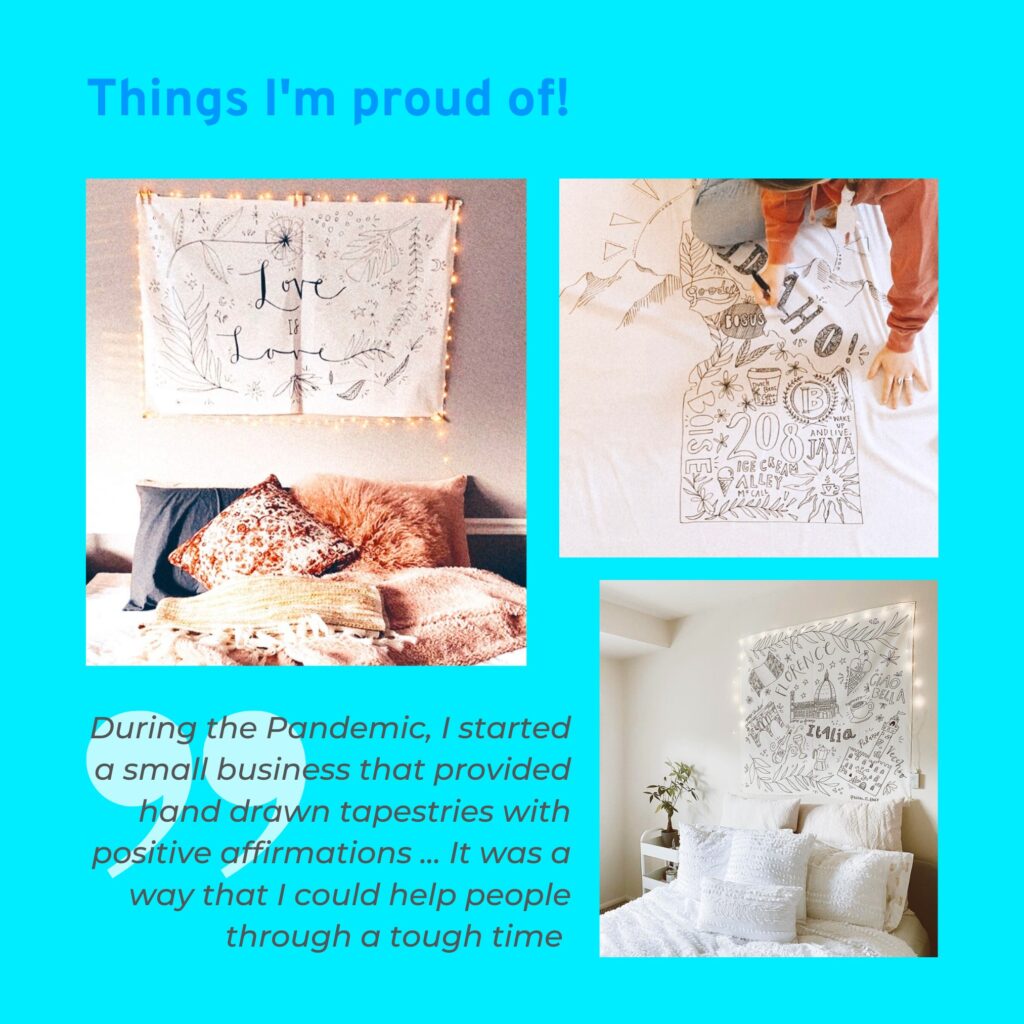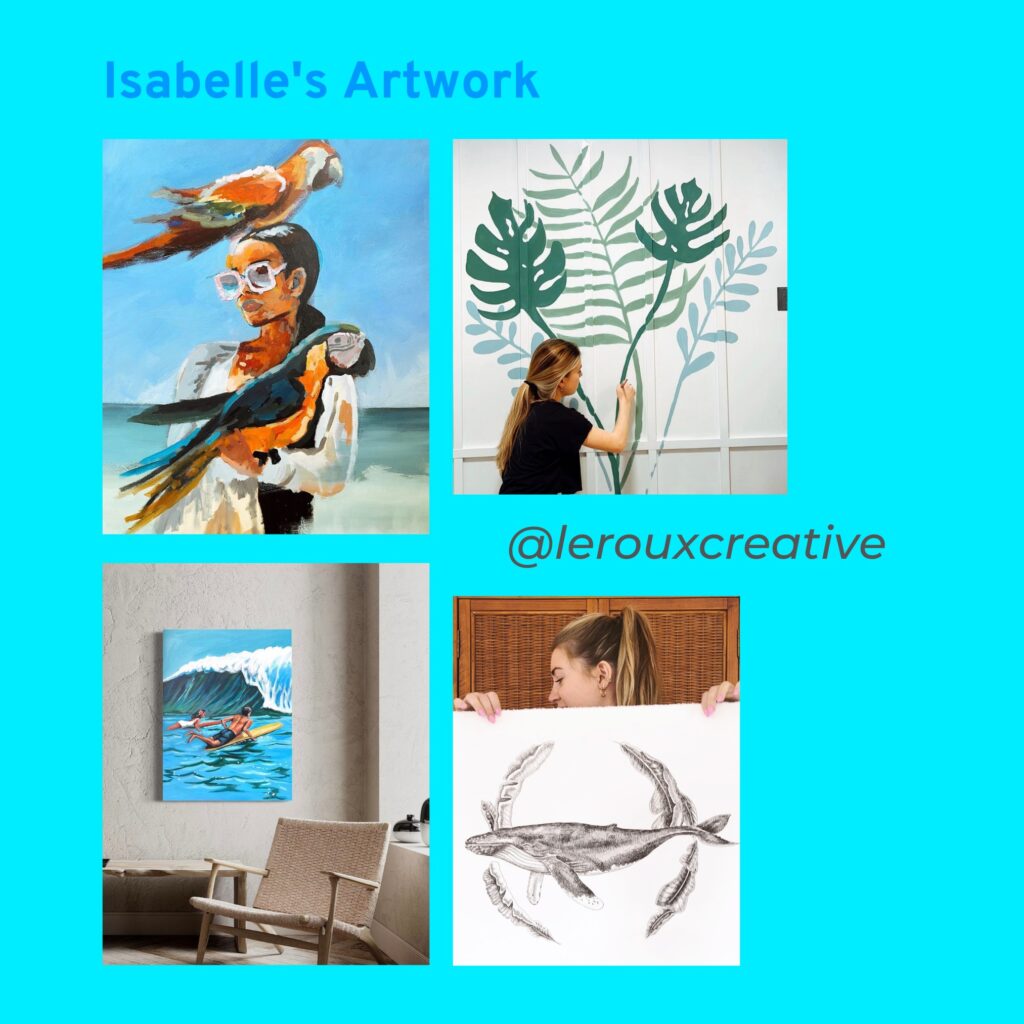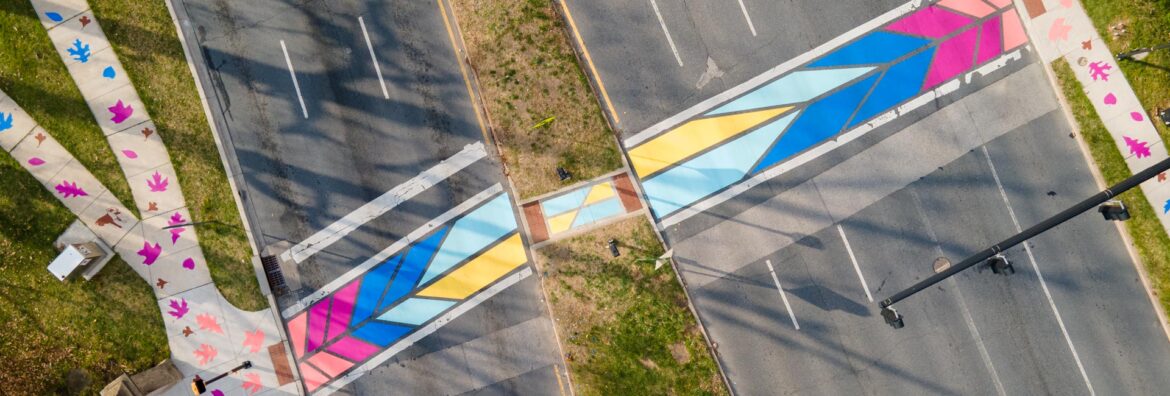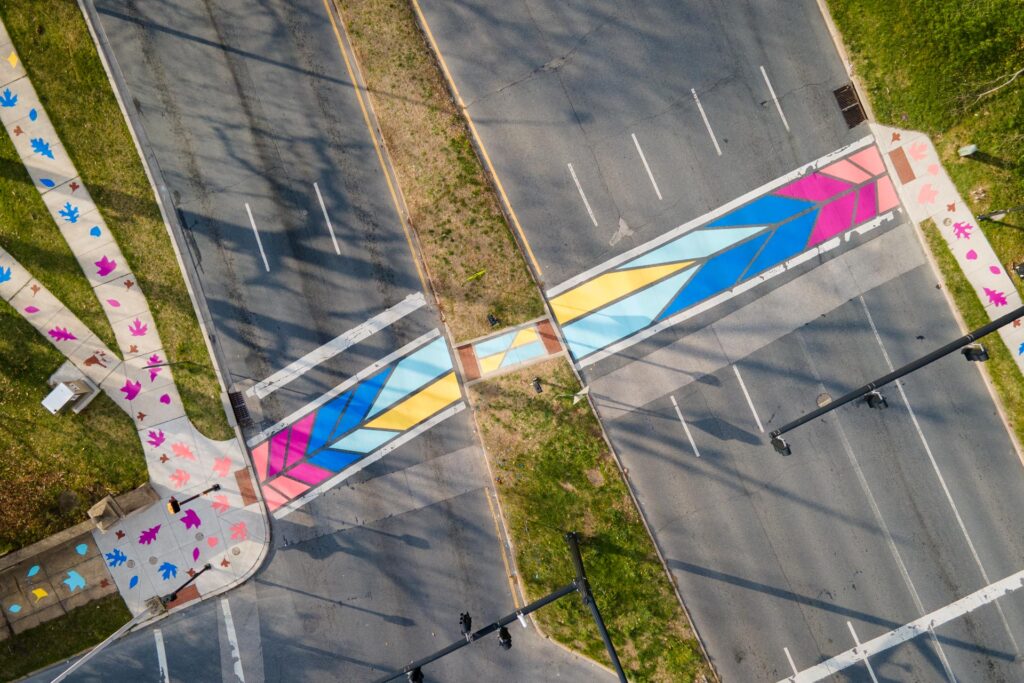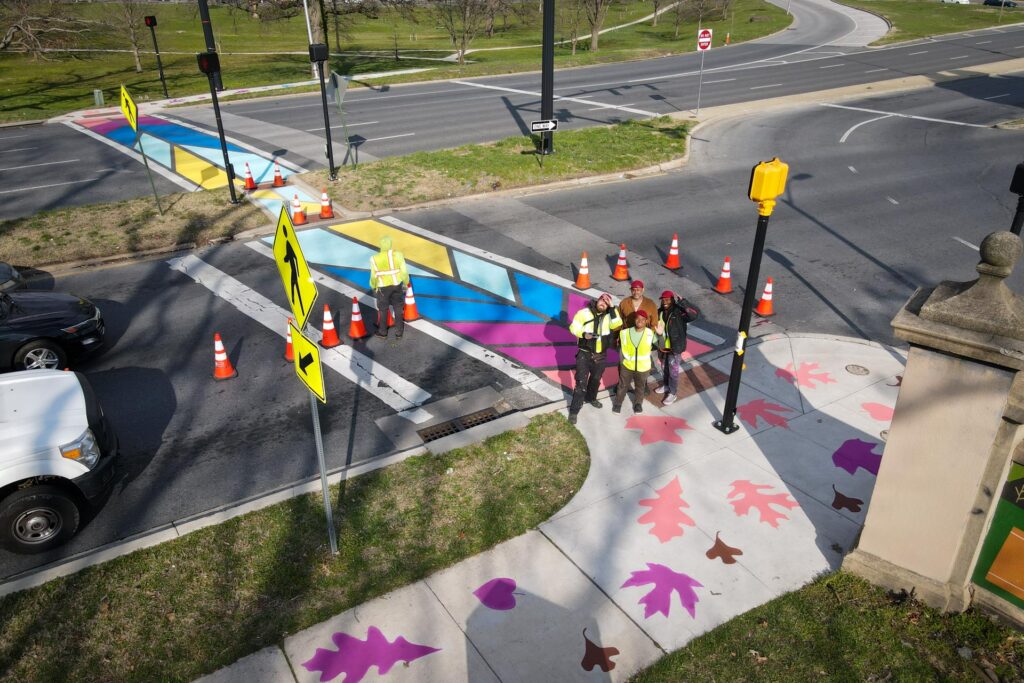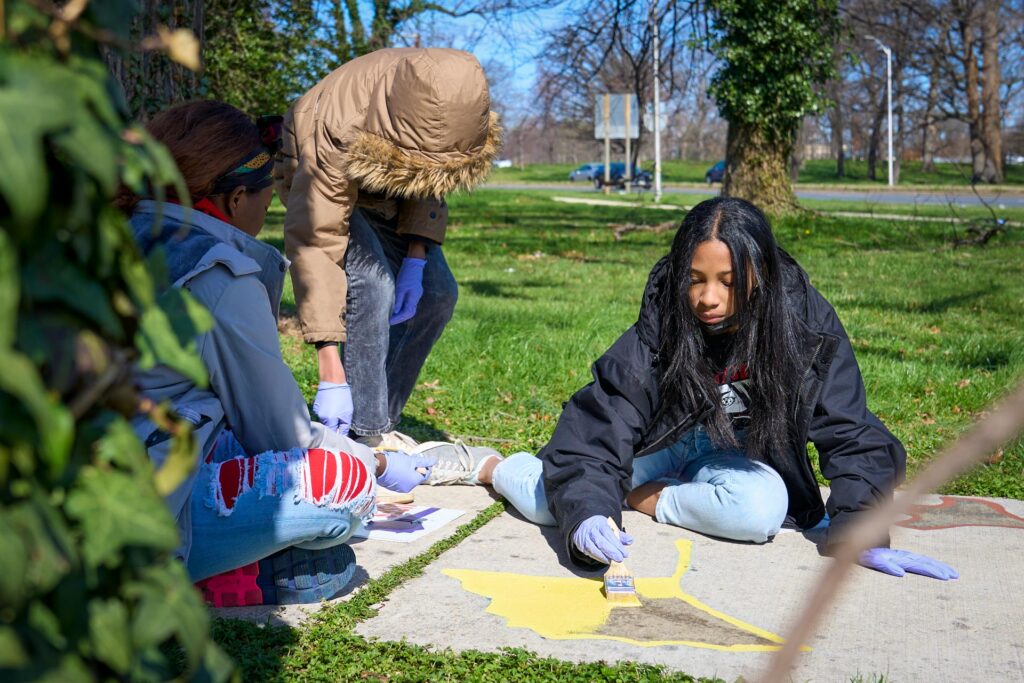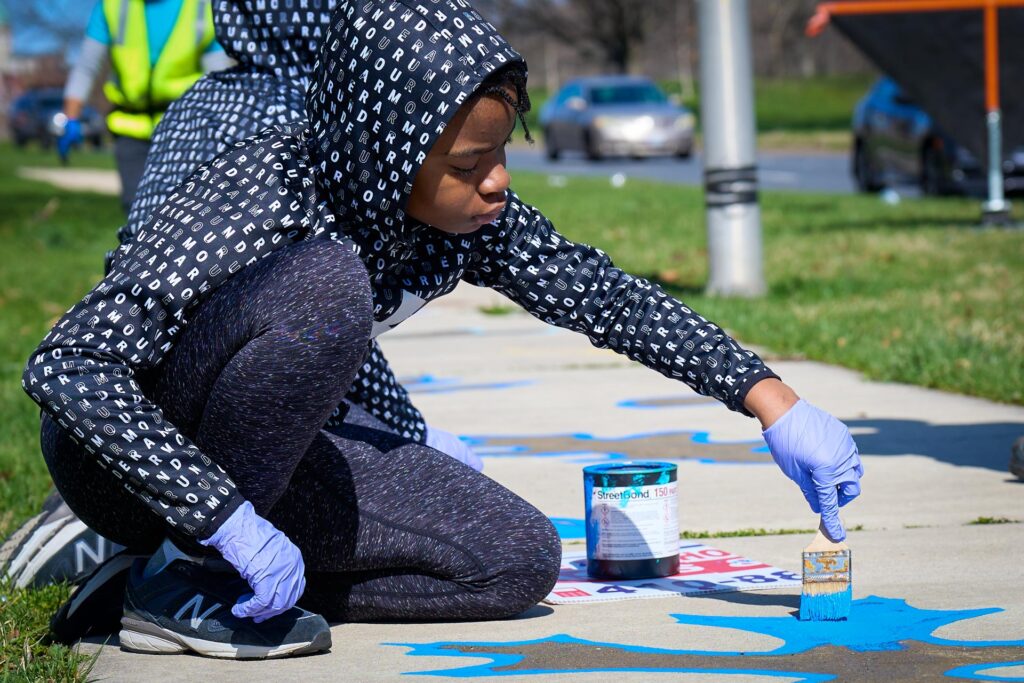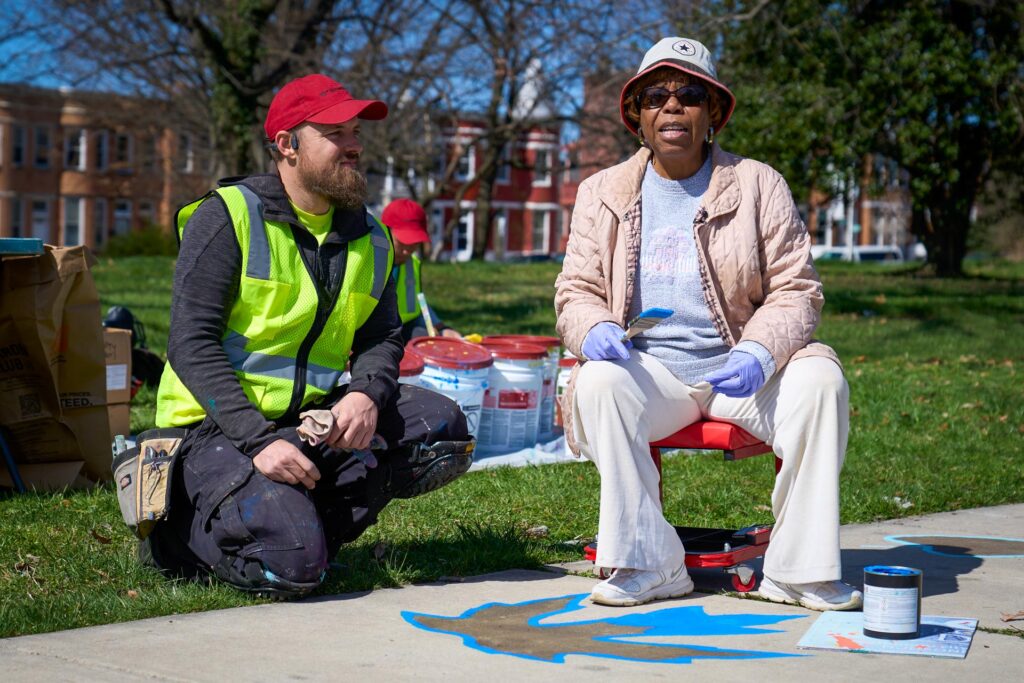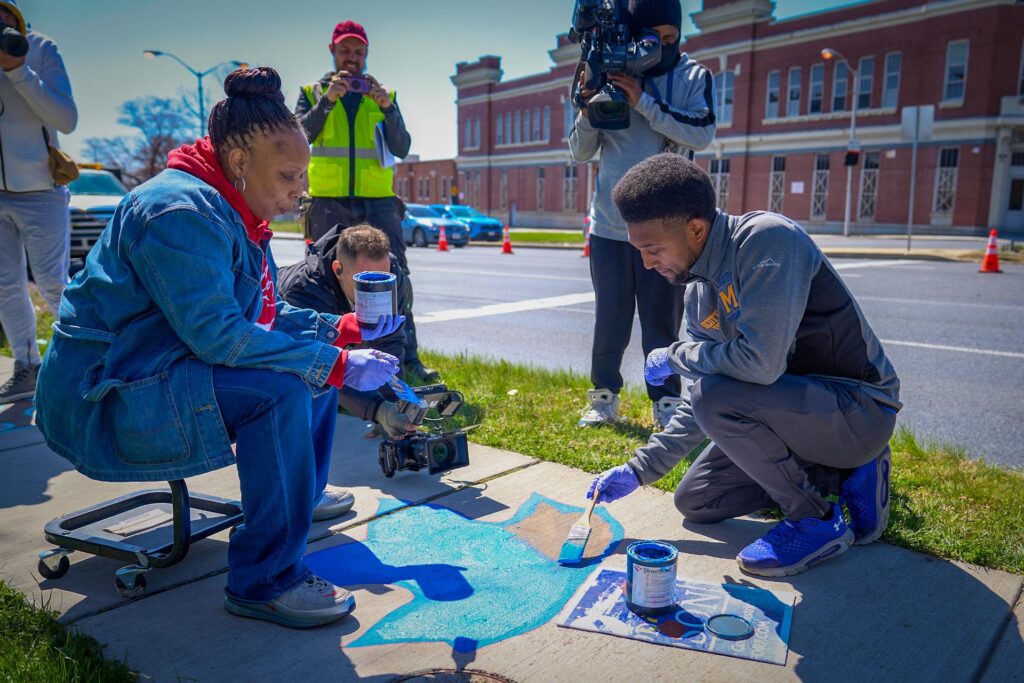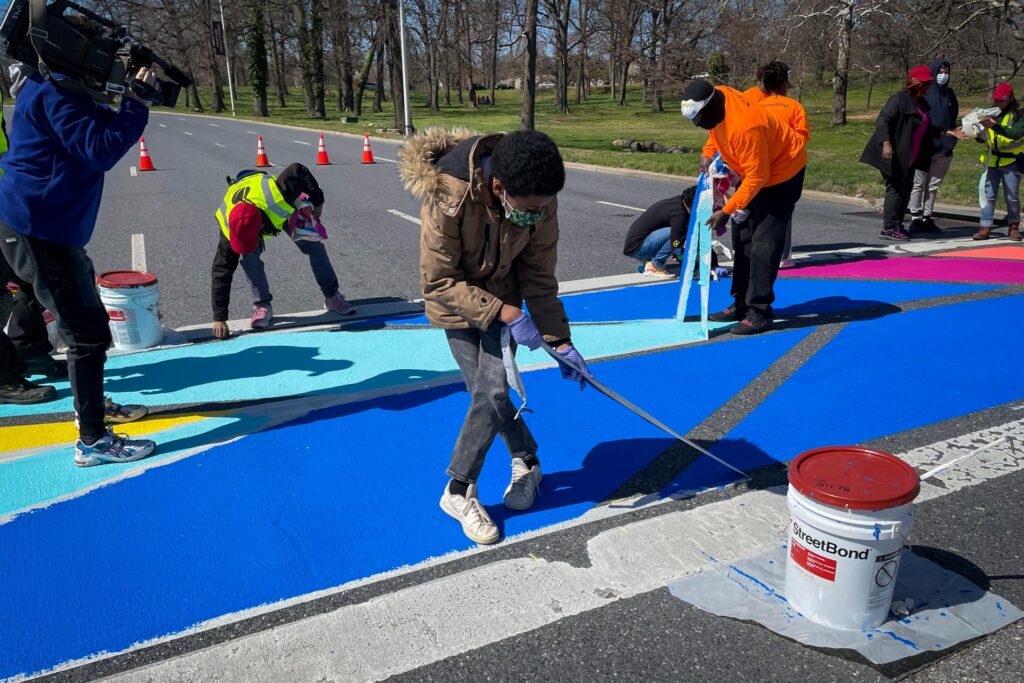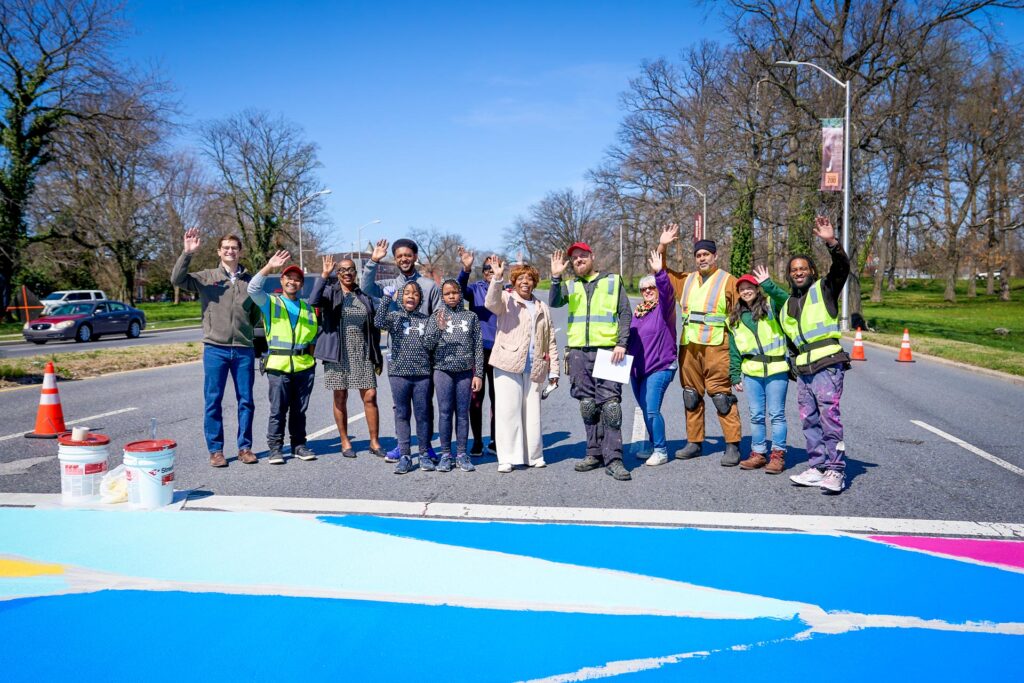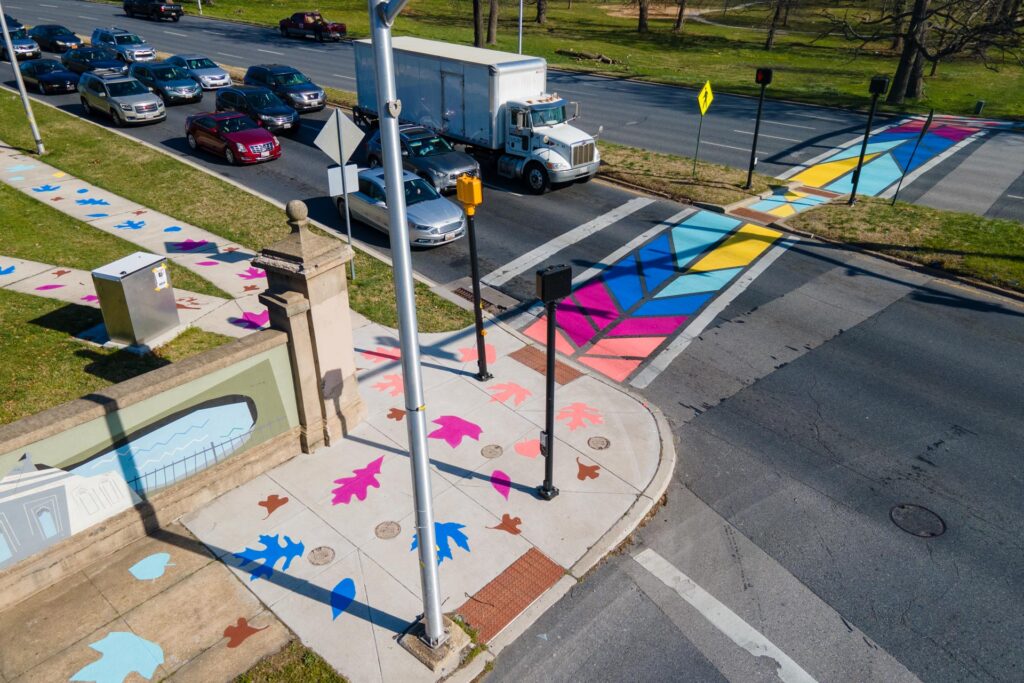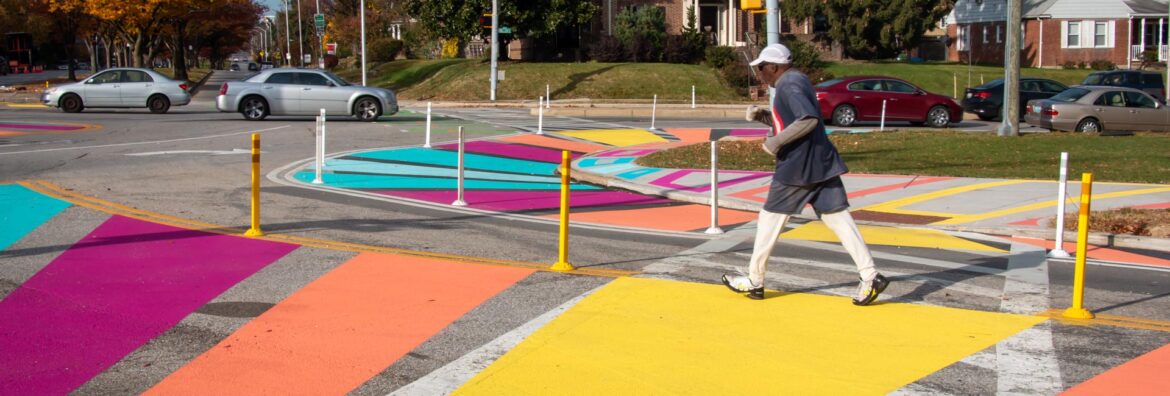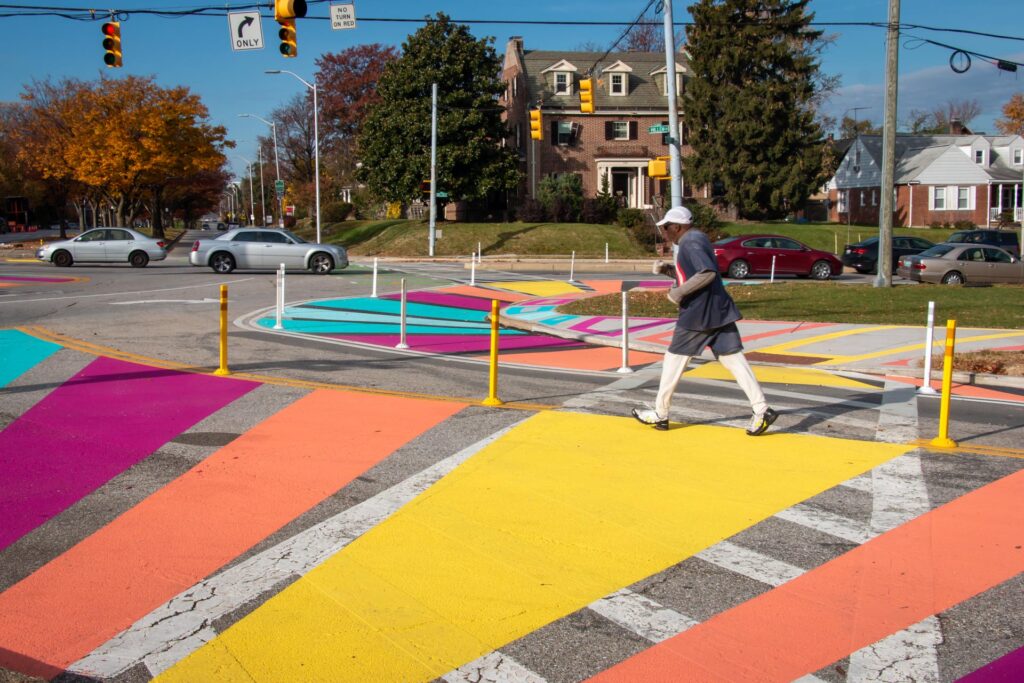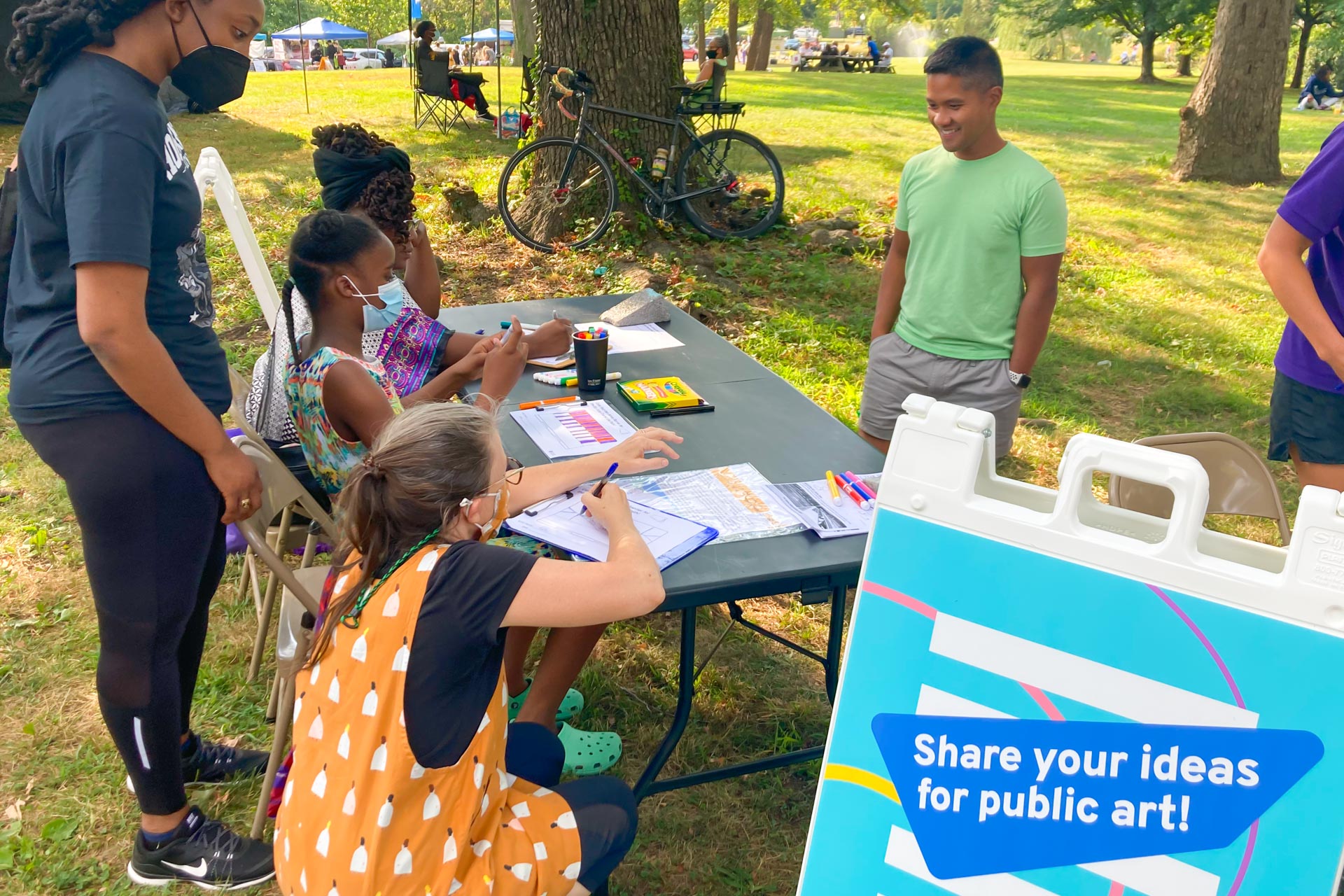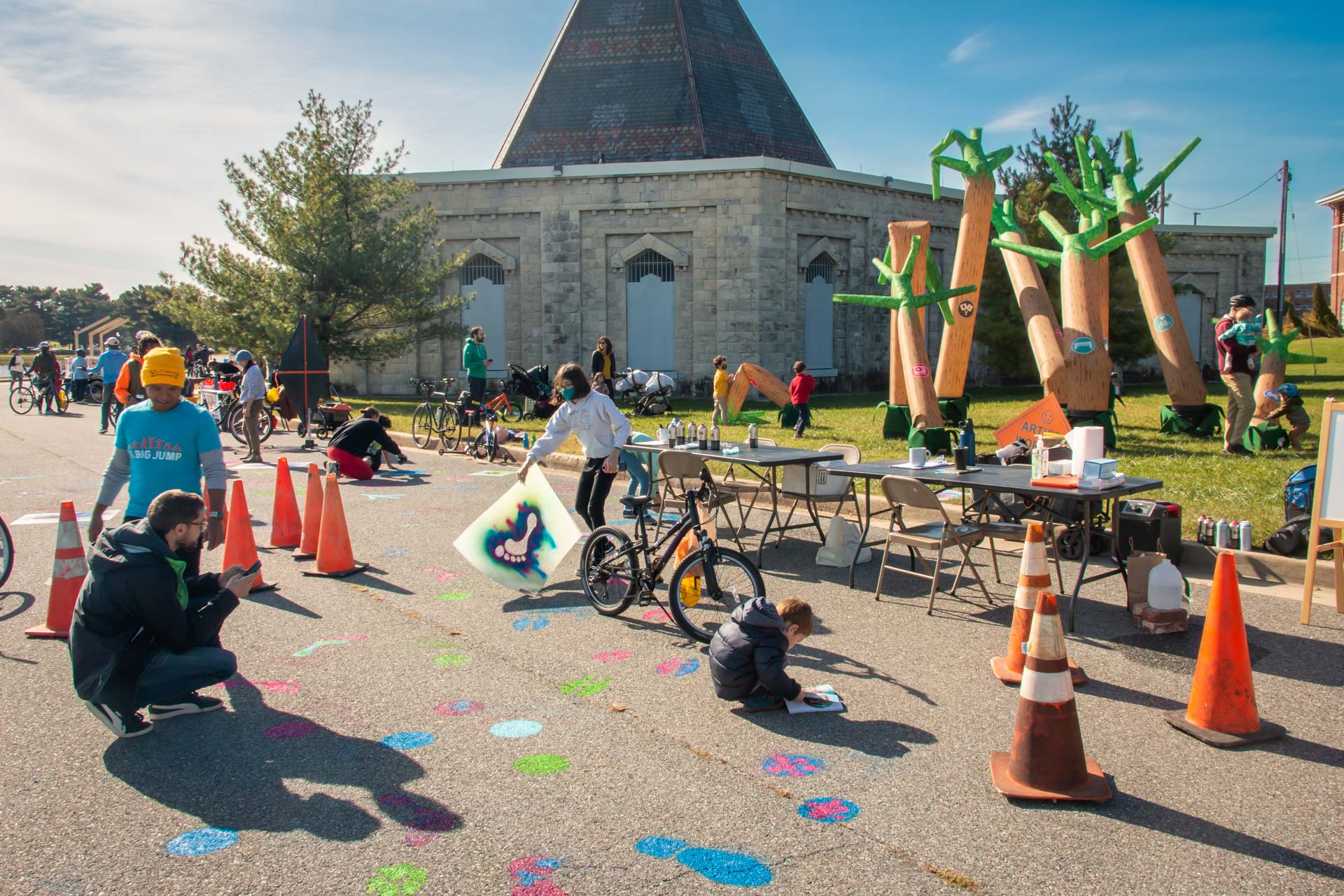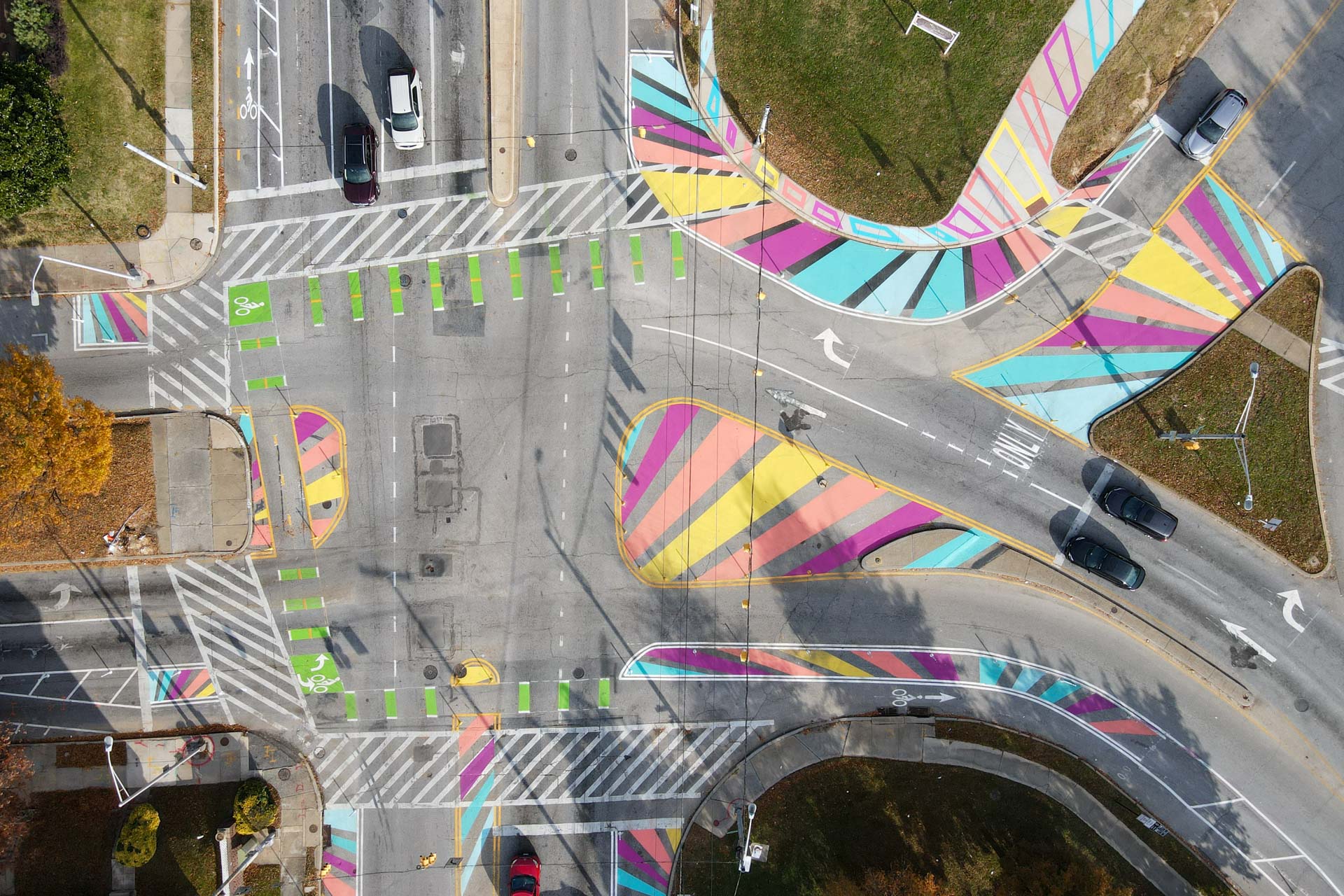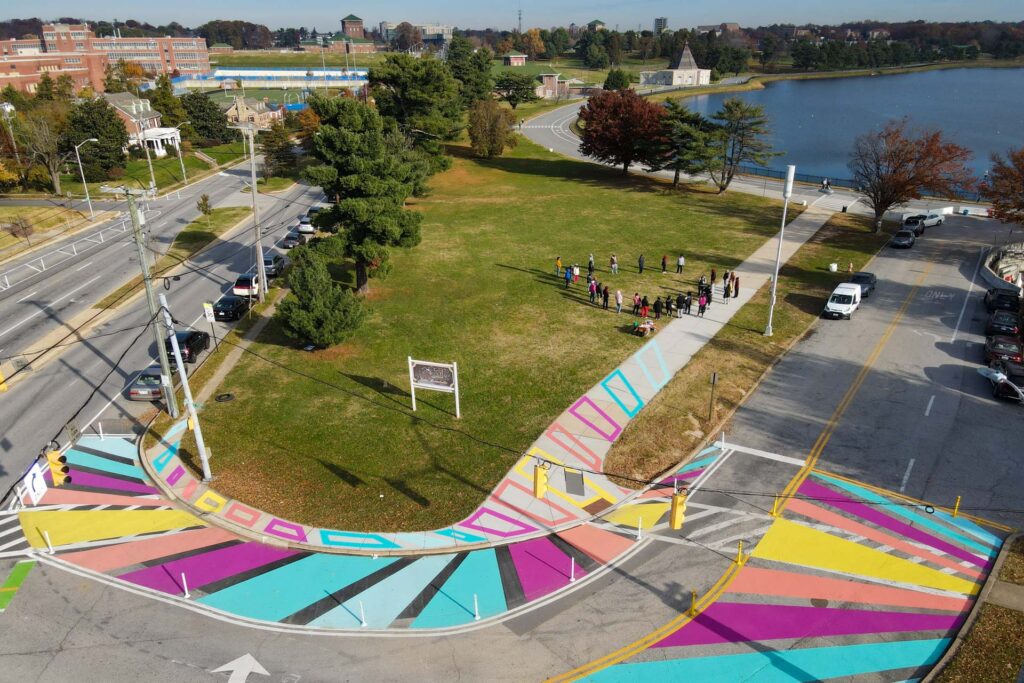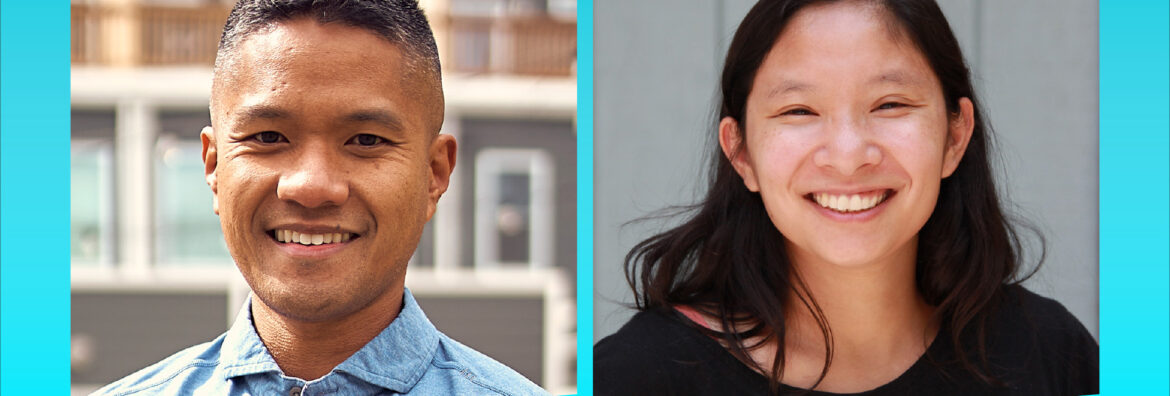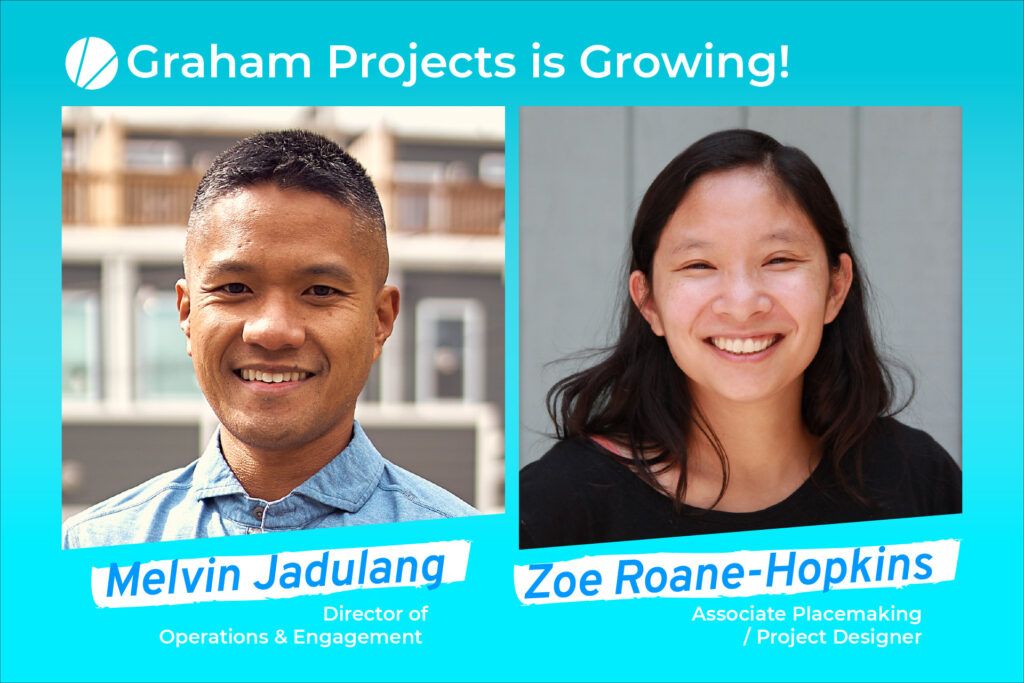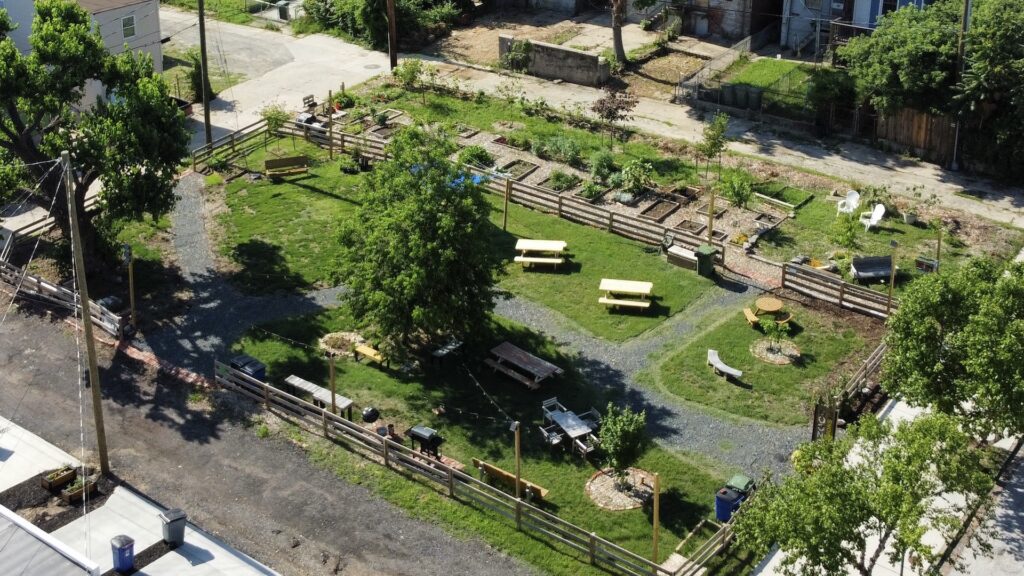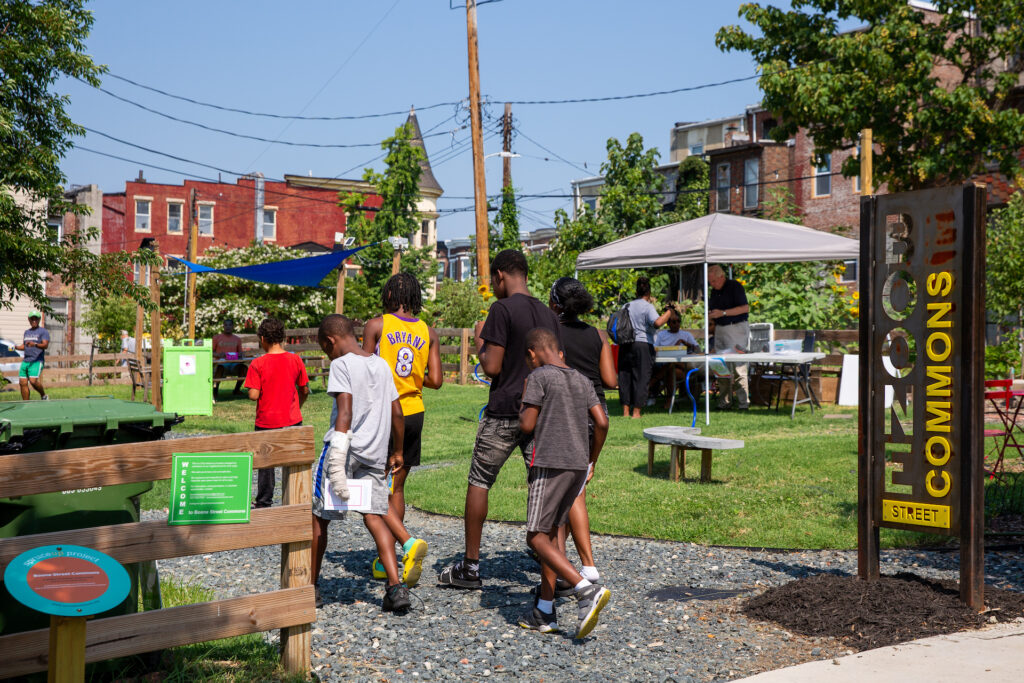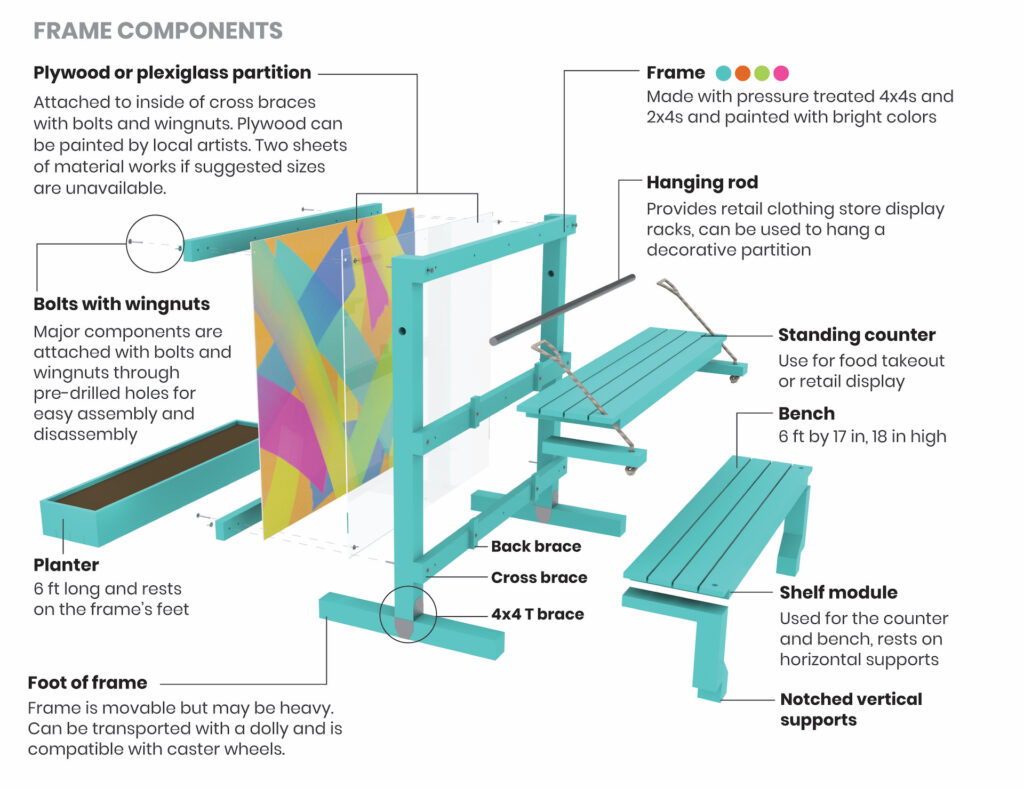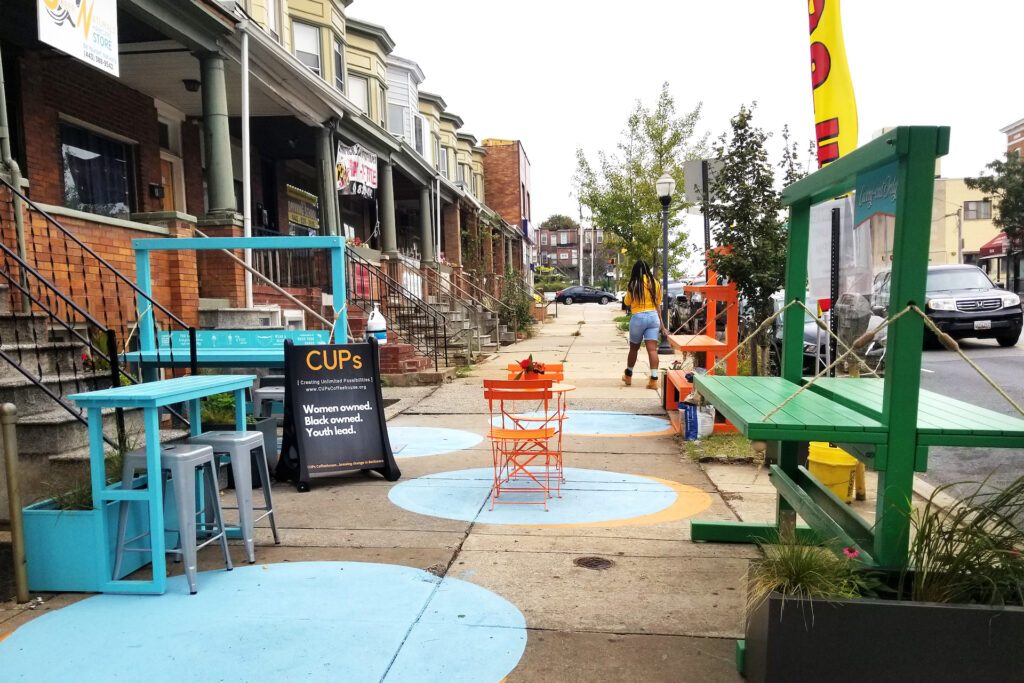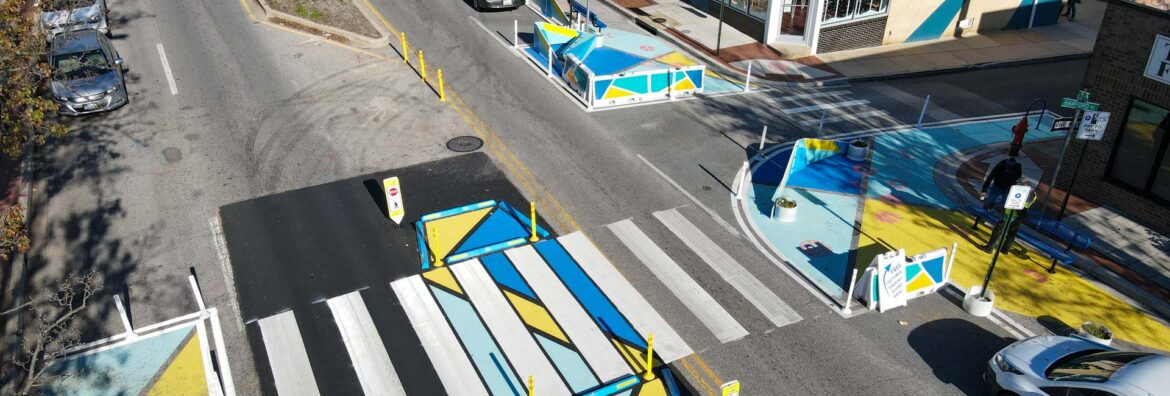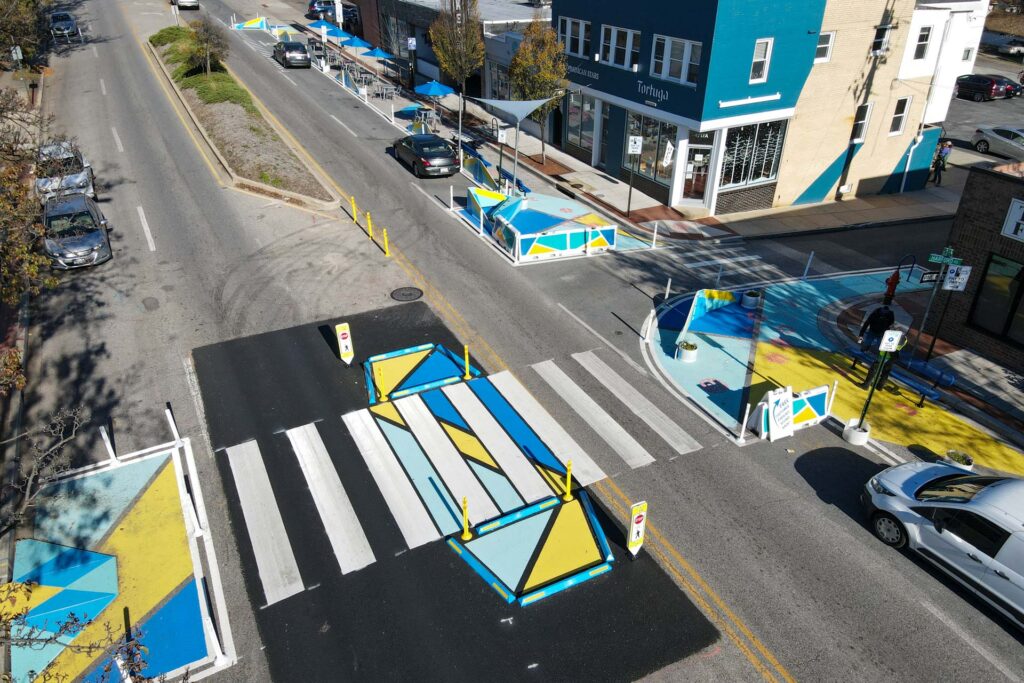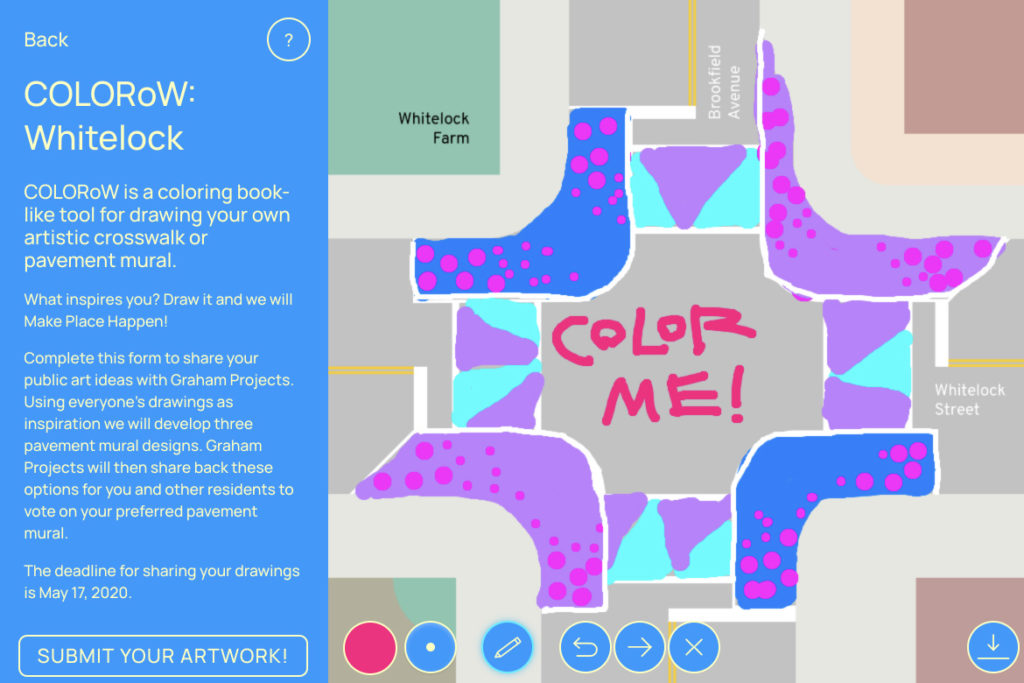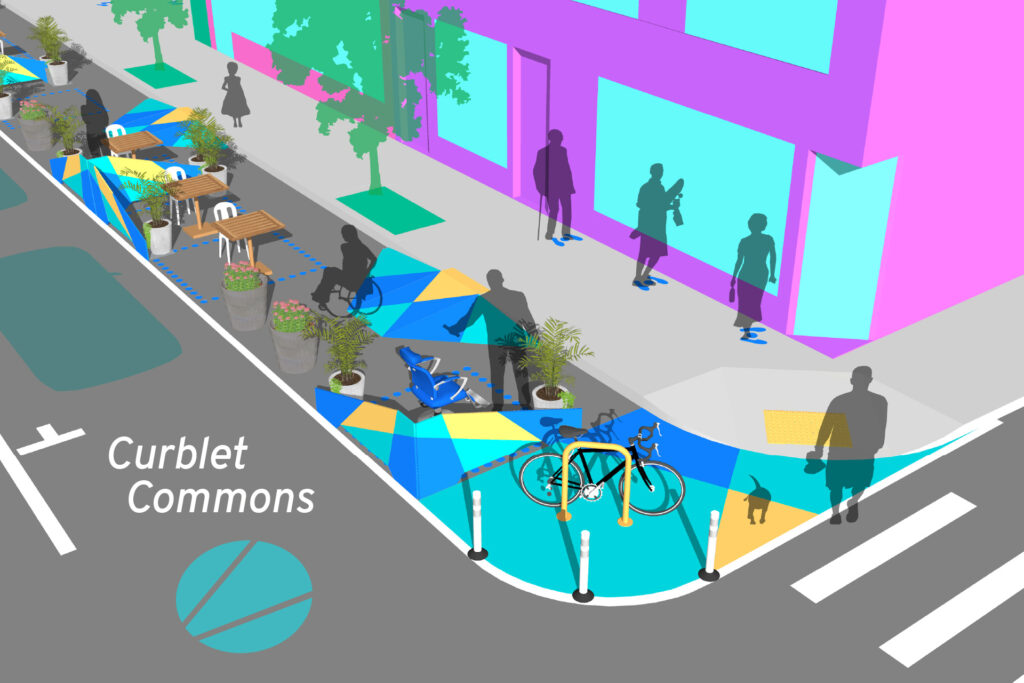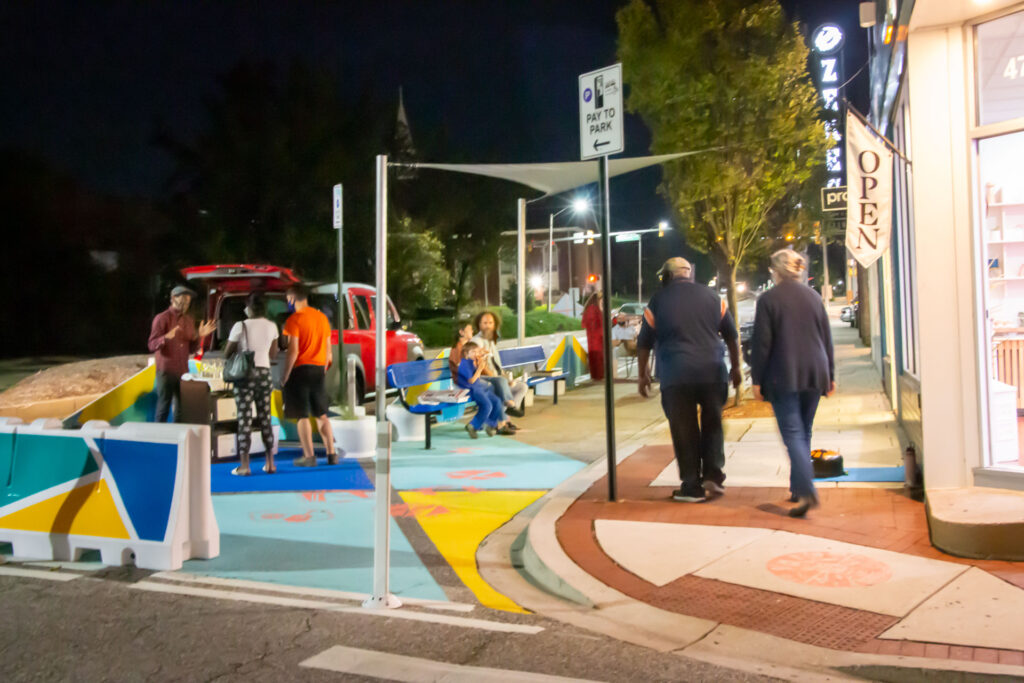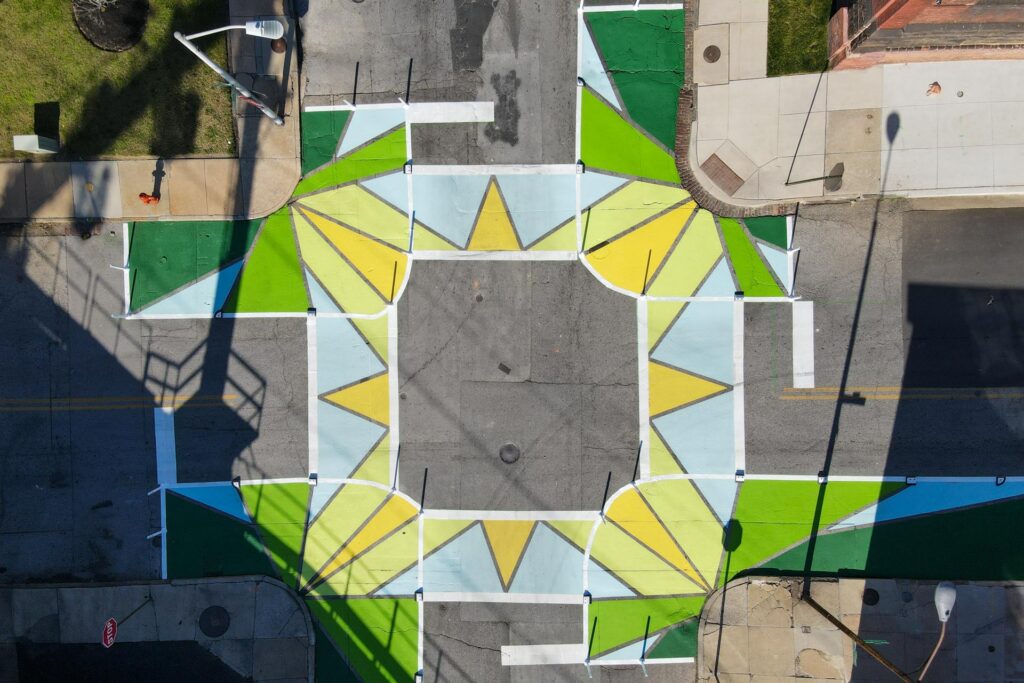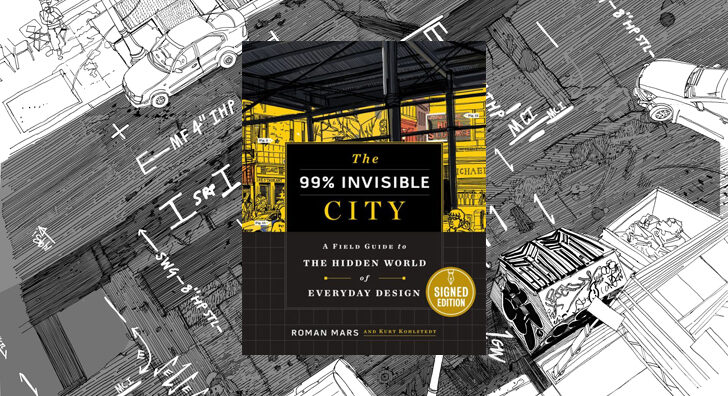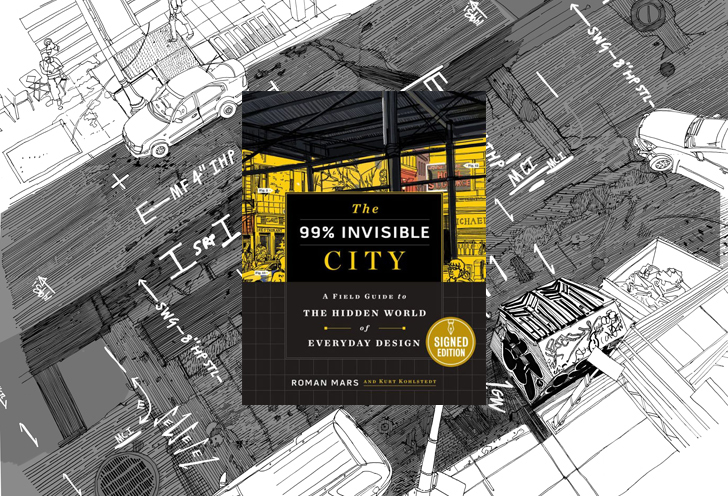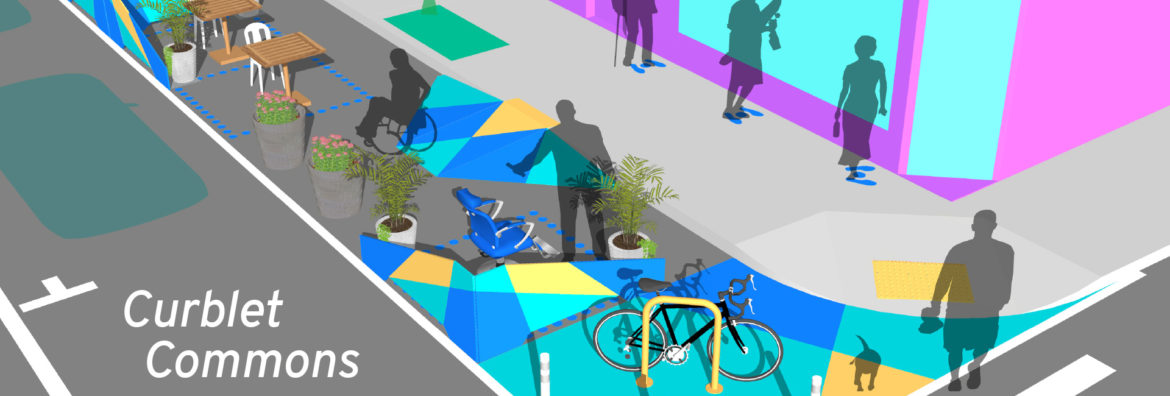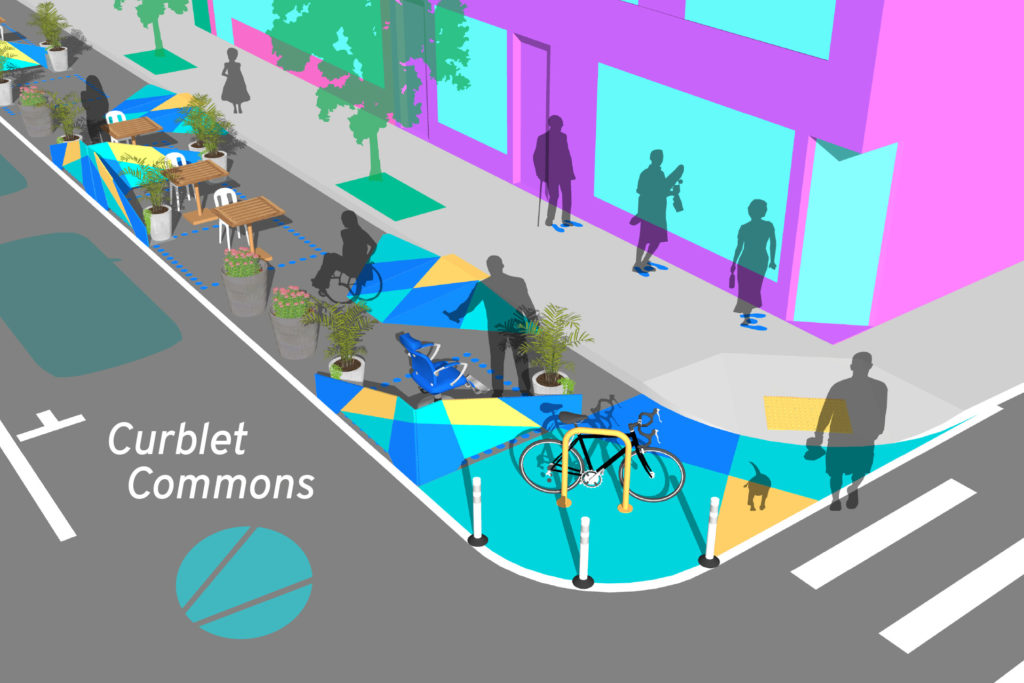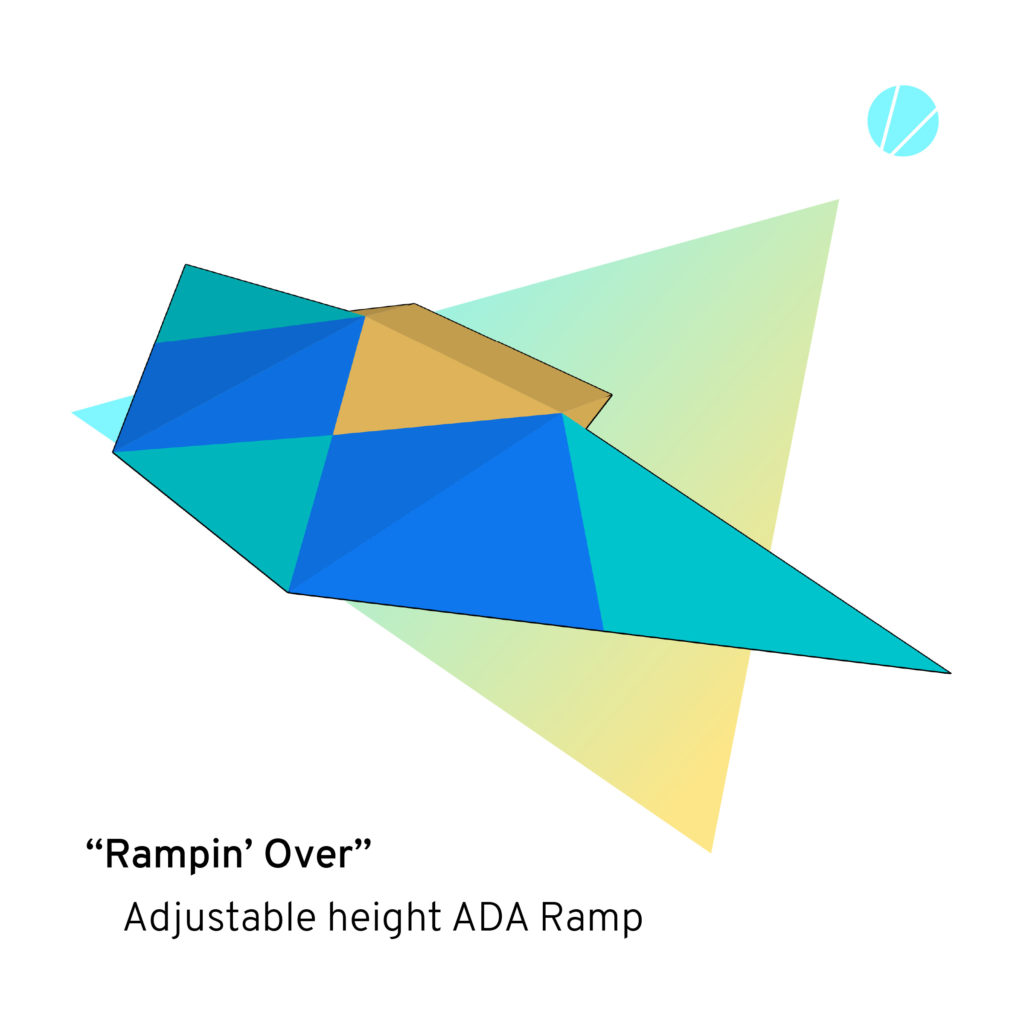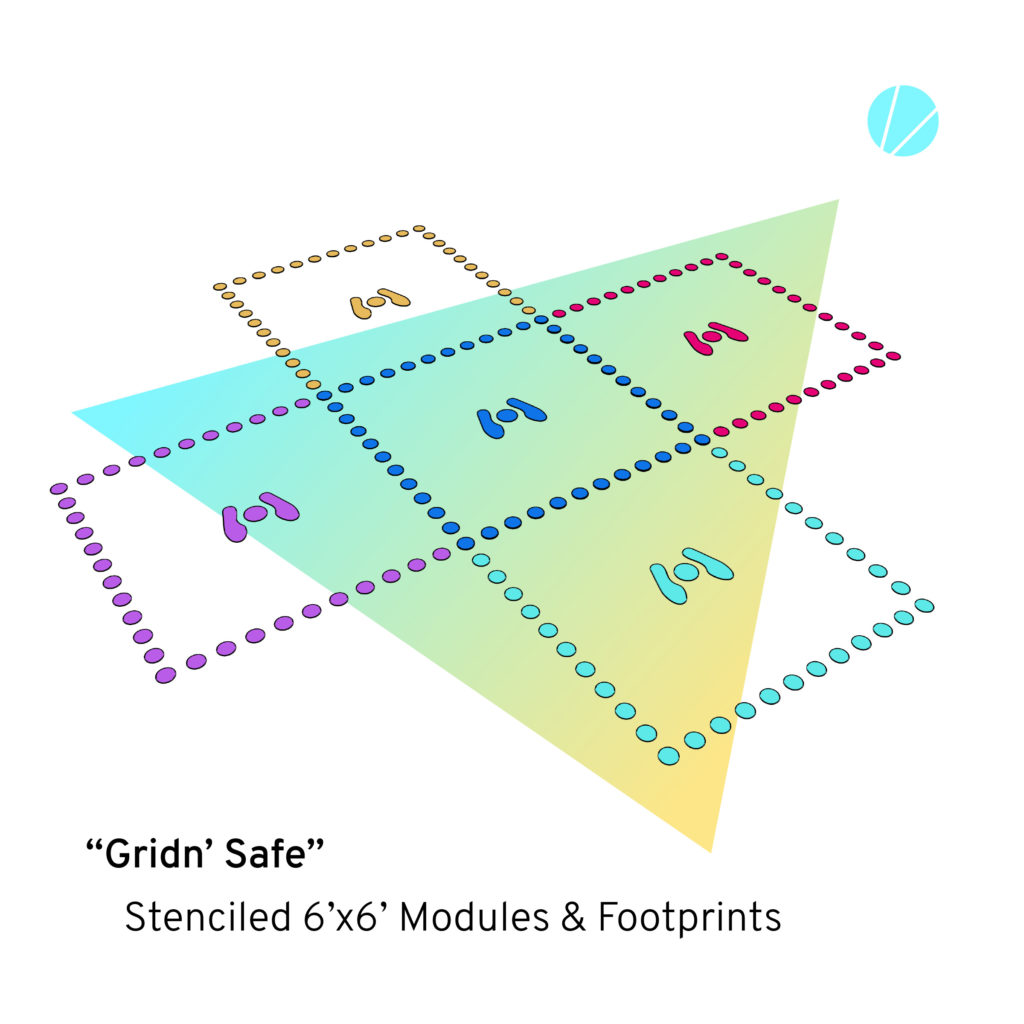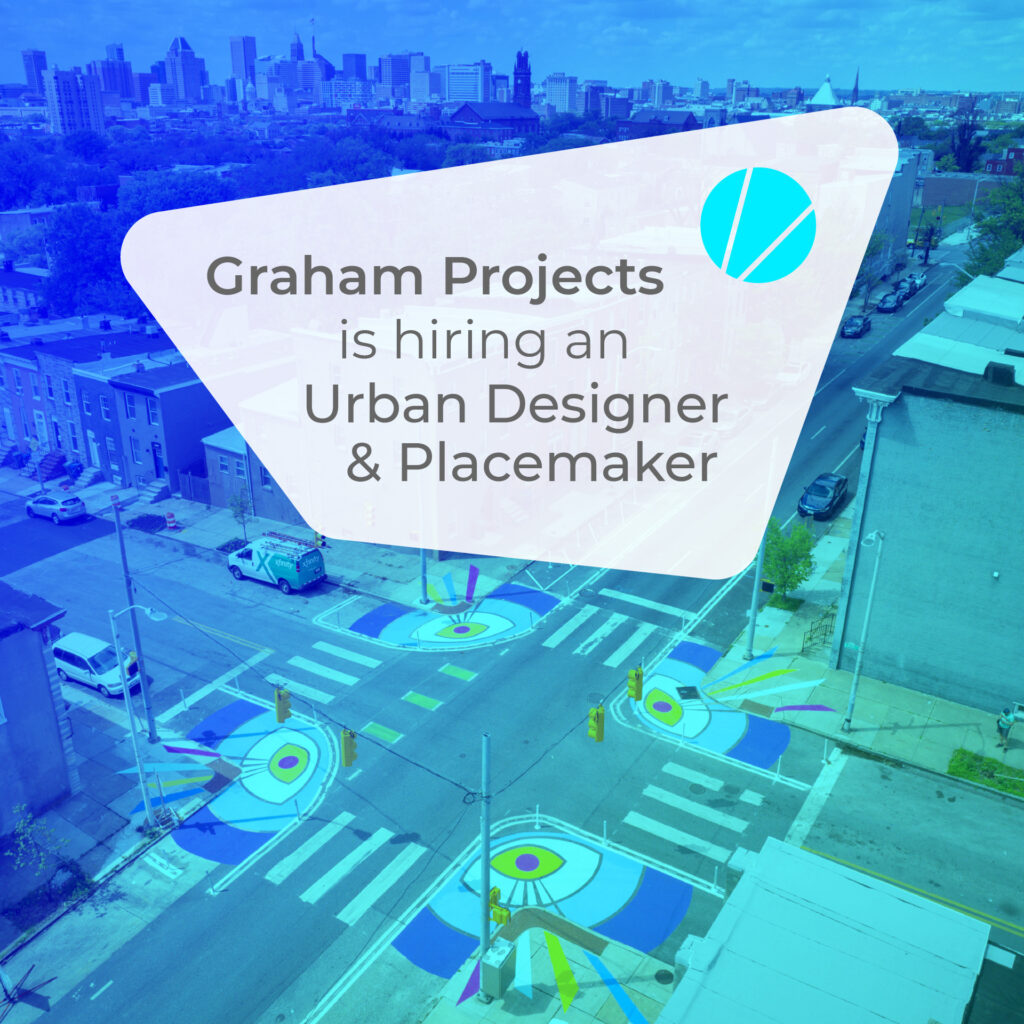
Graham Projects is a Baltimore-based design-build agency making cities more inclusive and livable through public art, placemaking, and civic engagement. Building on backgrounds in public art, urban design, ecology, and neighborhood advocacy, Public Artist Graham Coreil-Allen (he/him) and team produce participatory projects in the service of pedestrians and places. We collaborate with communities via participatory public design processes to improve and activate public spaces with creative placemaking projects. Our works include pavement murals, traffic calming art installations, neighborhood plans, transforming vacant lots into public spaces, and using digital and manual techniques to design and fabricate artistic outdoor wayfinding, furnishings and structures.
The Graham Projects team is looking for an Urban Designer & Placemaker with a passion for working with communities to enhance public spaces through sustainable urbanism, public art, urban planning, and community advocacy.
Click here to download position description.
Job Description
This full-time salaried position is based in Baltimore City, Maryland and the employee must live in the Baltimore metro area. Reporting to our Founding Principal, the Urban Designer & Placemaker will have strategic and logistical control over their assigned projects, actively shaping the entire project process of community engagement, design, and construction. As a member of our company leadership, this role plays a pivotal part in Graham Projects’ growth, requiring the candidate to be hands-on and influential. Projects will primarily take place in Baltimore City, Maryland and surrounding states, requiring a candidate with reliable transportation and the flexibility to work nights and weekends.
This role demands a passion for walkable urbanism and public art, cultural competency, collaborative management, digital prowess, and physical resilience. The ideal candidate will be comfortable leading community engagement in a range of diverse settings. They will be extremely organized as we collaboratively track the progress of projects. As a skilled designer they will efficiently create 3D CAD models, scale plans, compelling renderings, and fun graphic designs across a range of print and digital media. In bringing our projects to life, they will move heavy objects, operate power tools, climb ladders, direct volunteers, get paint on their clothes, and install public art and placemaking in the heat and cold.
Responsibilities
Lead the Creative Placemaking Process
- Draft project proposals and estimates
- Develop public art and placemaking design concepts
- Engage in client / community relations
- Procure materials and track budgets
- Maintain shared project management files
- Generate construction and installation plans
- Lead installations and community build days
- Help document the design-build process
Organizational Skills and Collaboration
- Practice meticulous organizational protocols while staying nimble in project execution. Track project progress using shared Google Docs / Sheets / Drive, Asana project management platform, email, and Slack.
- Collaborate with clients, stakeholders, other artists and designers, project managers, and community members on project design development.
Communication and Engagement
- Engage in public speaking and networking opportunities.
- Attend client kick-off meetings, lead interactive engagement events, actively participating in fast-paced project-related communication.
- Actively build and maintain relationships with clients, community leaders, and sector partners.
Design and Documentation
- Design public art and placemaking projects using SketchUp, Layout, Canva, and Adobe Creative Cloud: Illustrator, Photoshop, Lightroom, and InDesign.
- Clearly articulate ideas, conceptualize design directions, and review progress with the Founding Principal and/or Director of Operations at key stages for feedback and approvals.
- Craft and contribute to the design, writing, and review of project-related documents, photos, video, social media, and reporting.
Implementation
- Draft and submit applications to initiative municipal site plans reviews.
- Draft, submit, and tenaciously follow up on permit applications.
- Order supplies and coordinate deliveries.
- Collaborate with subcontractors on support services and fabrication needs.
- Work closely with the Director of Operations on scheduling installations.
- Manage logistics, coordinate with the install team, lead community volunteers, and participate in installations.
- Assist with photographic and video documentation of installations.
Qualifications
- College Degree in landscape architecture, urban planning, architecture, design, visual art, transportation; OR equivalent experience and skills related to the described responsibilities.
- Passionate about cities, walkable urbanism, public art, and placemaking.
- Creative designer, maker, and problem solver.
- Flexibility with work schedule and tasks as company services evolve.
- Ability to work independently with at times limited direction, making decisions based on company principals and project goals.
- Ability to meet tight timelines, prioritize among competing needs and opportunities, and simultaneously manage multiple projects.
- Demonstrated ability to secure projects, whether through earned relationships, grants, or RFQs/RFPs.
- Interest in staying informed on local transportation, planning, and social justice issues. Comfortable with tactfully discussing challenging topics with community members and government officials.
- Experience with planning and running public events such as in-person and virtual workshops, charrettes, community meetings, tabling at festivals, etc.
- Knowledge of Baltimore City geography and neighborhoods is a plus.
- Technical Proficiency with:
- Project and collaboration software including or similar to Google Docs / Sheets / Drive, Asana project management platform, Slack, and Zoom.
- Design software including SketchUp, Layout, Canva, and Adobe Illustrator, Photoshop, Lightroom, and InDesign.
- Intermediate woodworking power tools use and safety protocol.
- Experience with digital fabrication such as 3d printing, laser cutting, and CNC routing is a plus.
Workplace & Schedule
This position is primarily work-from-home for design tasks, which usually take place during typical business hours. Community engagement and installations require some evening and weekend work, especially during our busy season from April through October. A company design studio and fabrication workshop is currently under development. Access to the shared workspace is estimated to begin 2025.
Compensation and Benefits
- $50,000 – $60,000 / yr commensurate with experience
- 7 days of flexible PTO plus 7 paid typical holidays off
- Flexible work environment: work-from-home and in the field
- Healthcare monthly stipend or optional salary equivalent
- Retirement savings account
To Apply
Graham Projects is an equal opportunity employer and strongly encourages candidates of diverse backgrounds and experience to apply. Send your resume, cover letter that details your interest in the position and your experience, and links to documentation of urban design, public art and/or placemaking projects you have worked on to info@grahamprojects.com. Include “Urban Designer & Placemaker” in the subject line. No phone calls, please.


